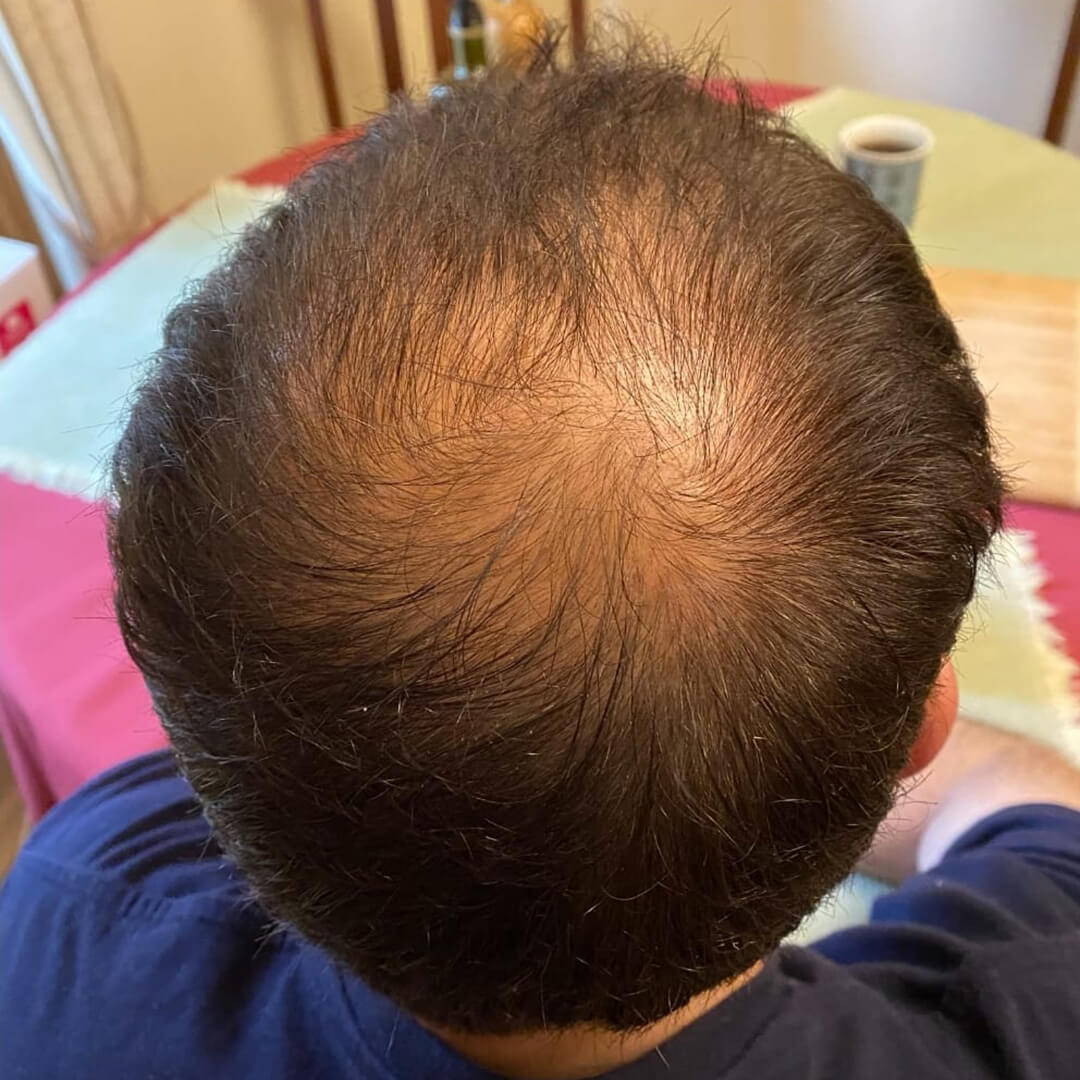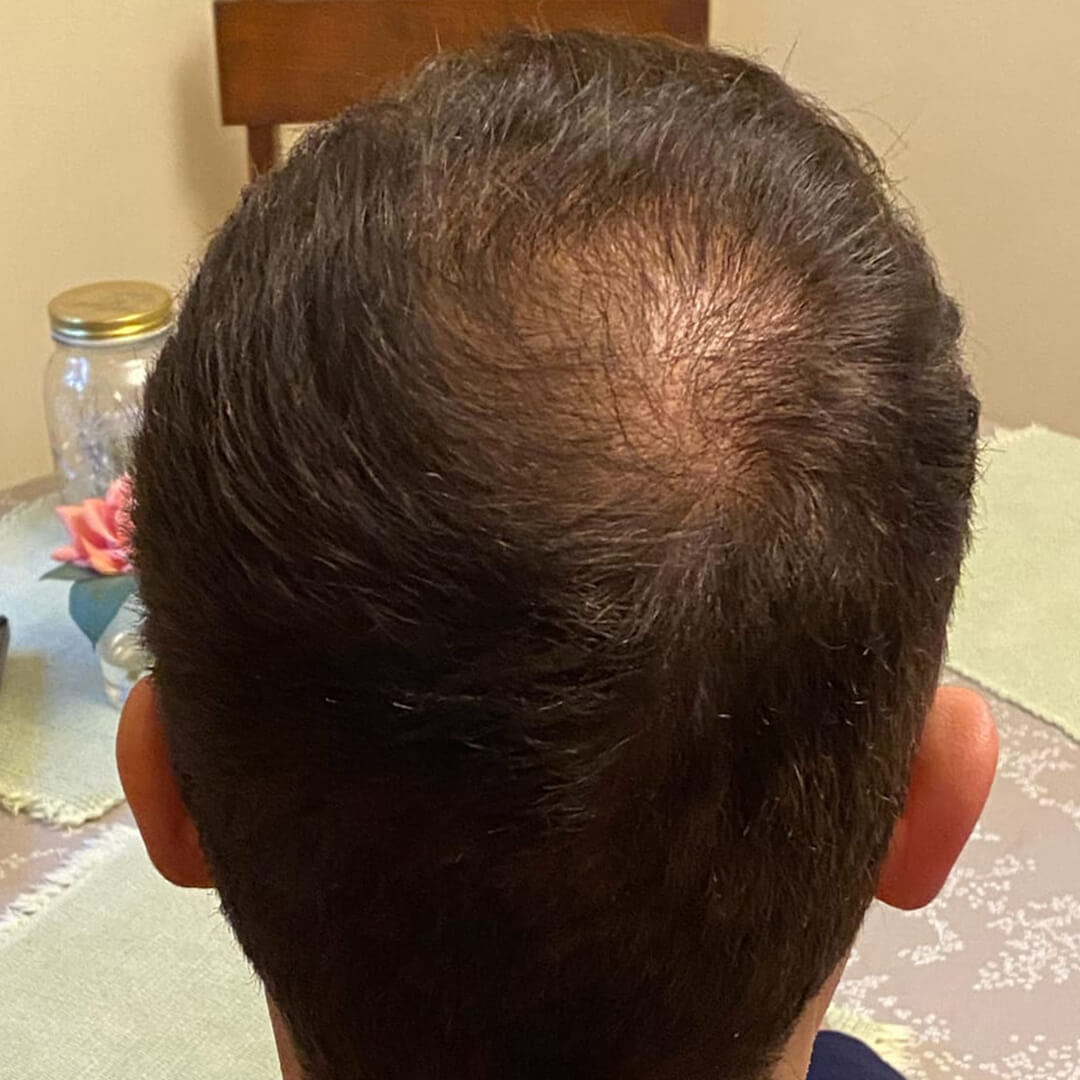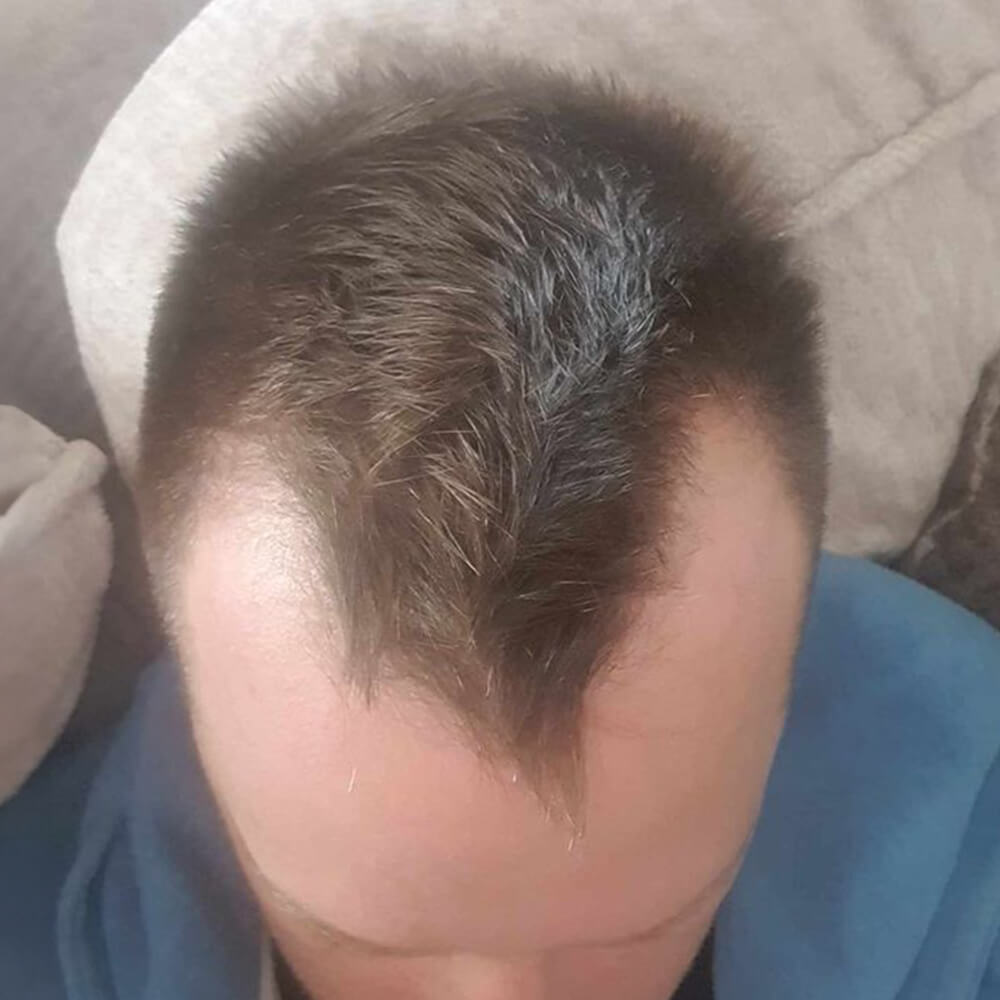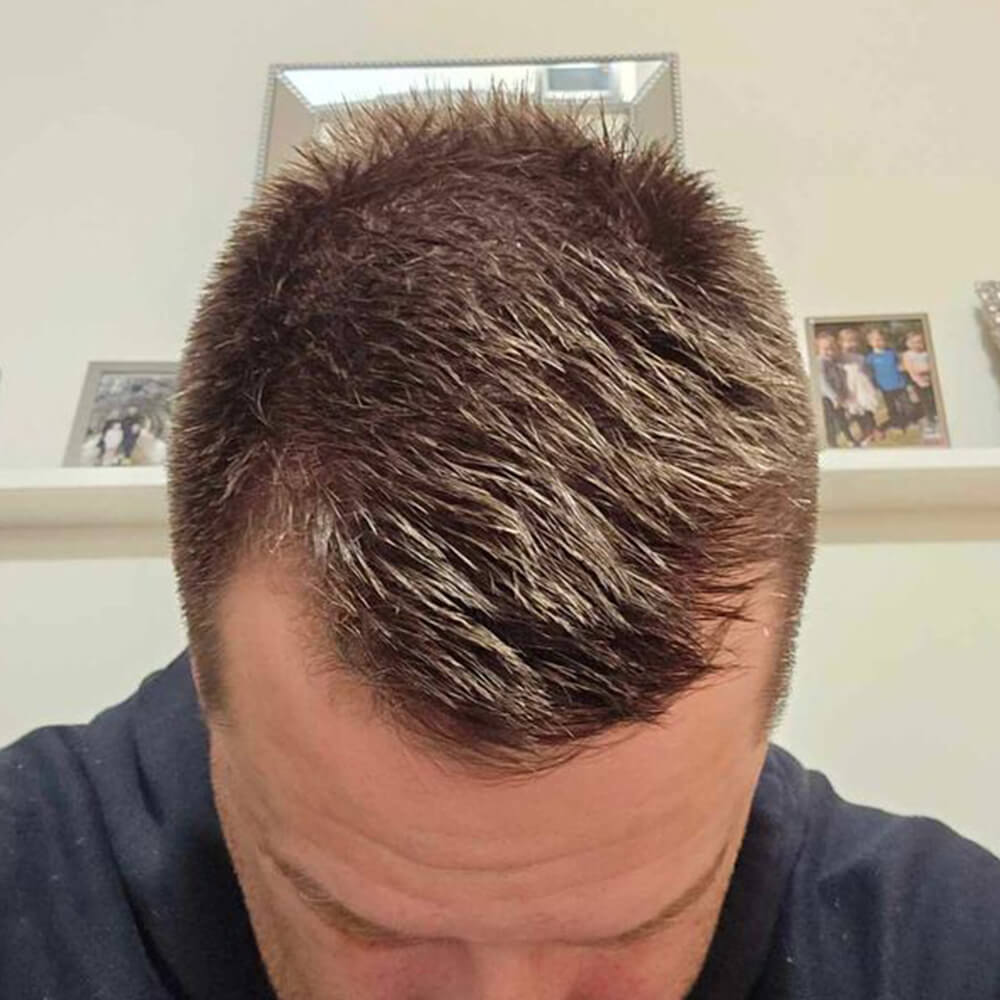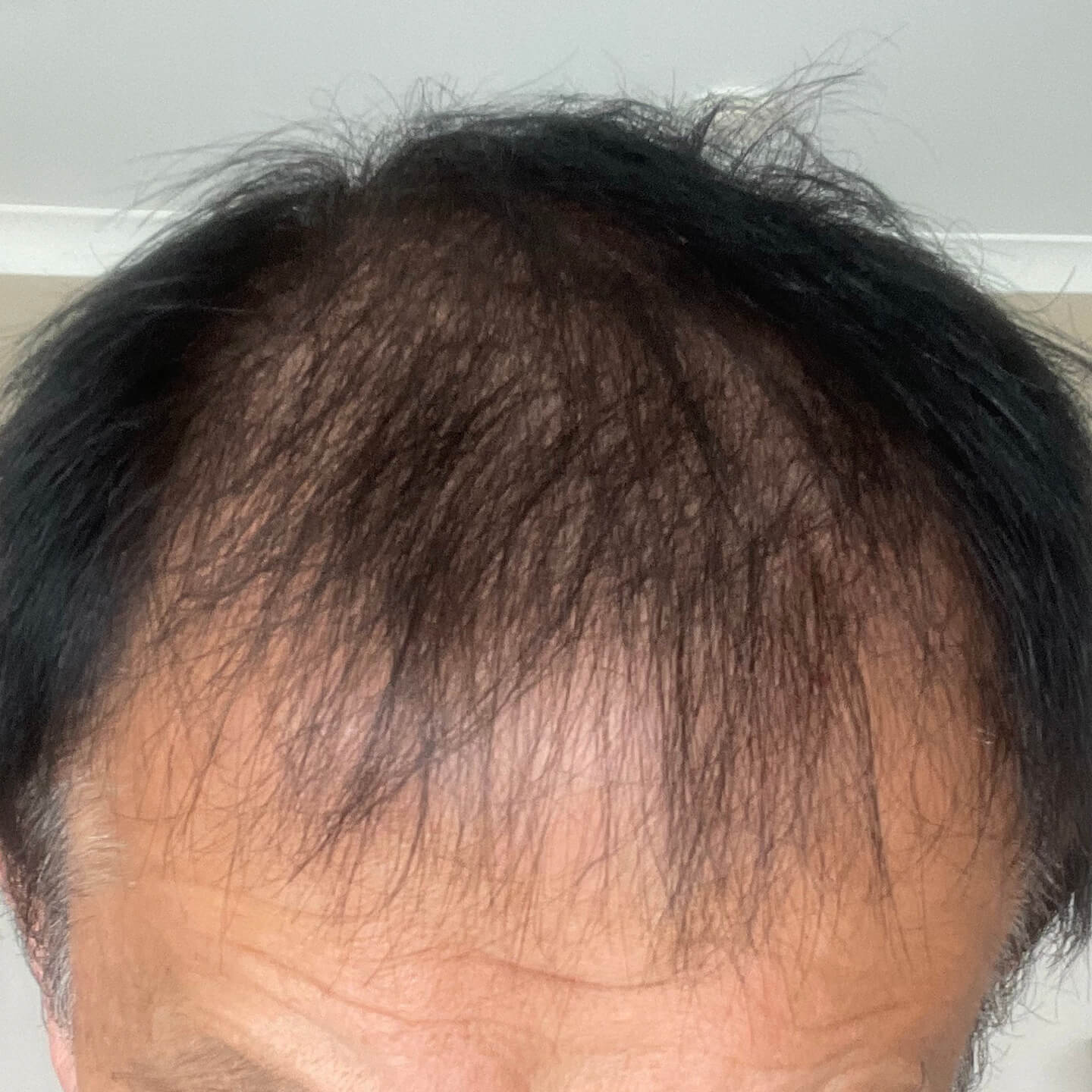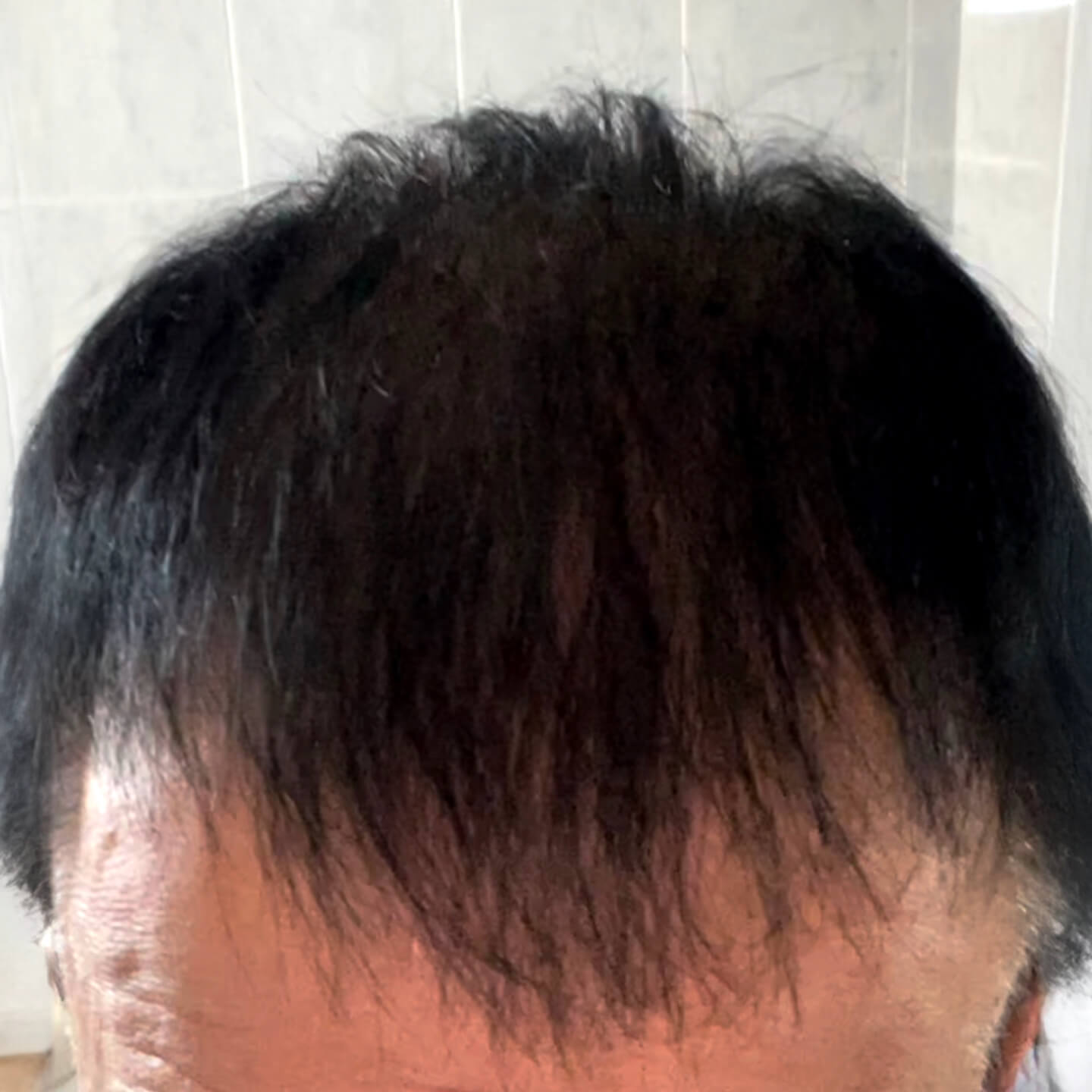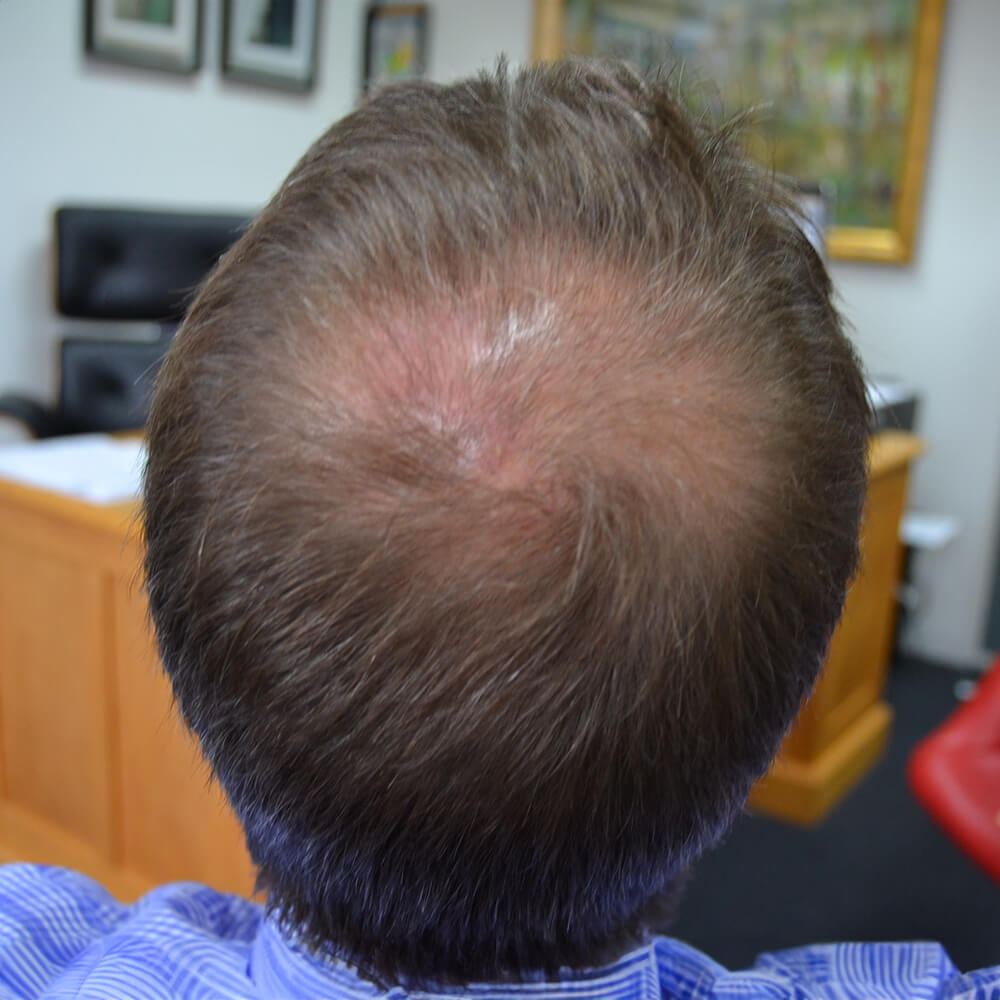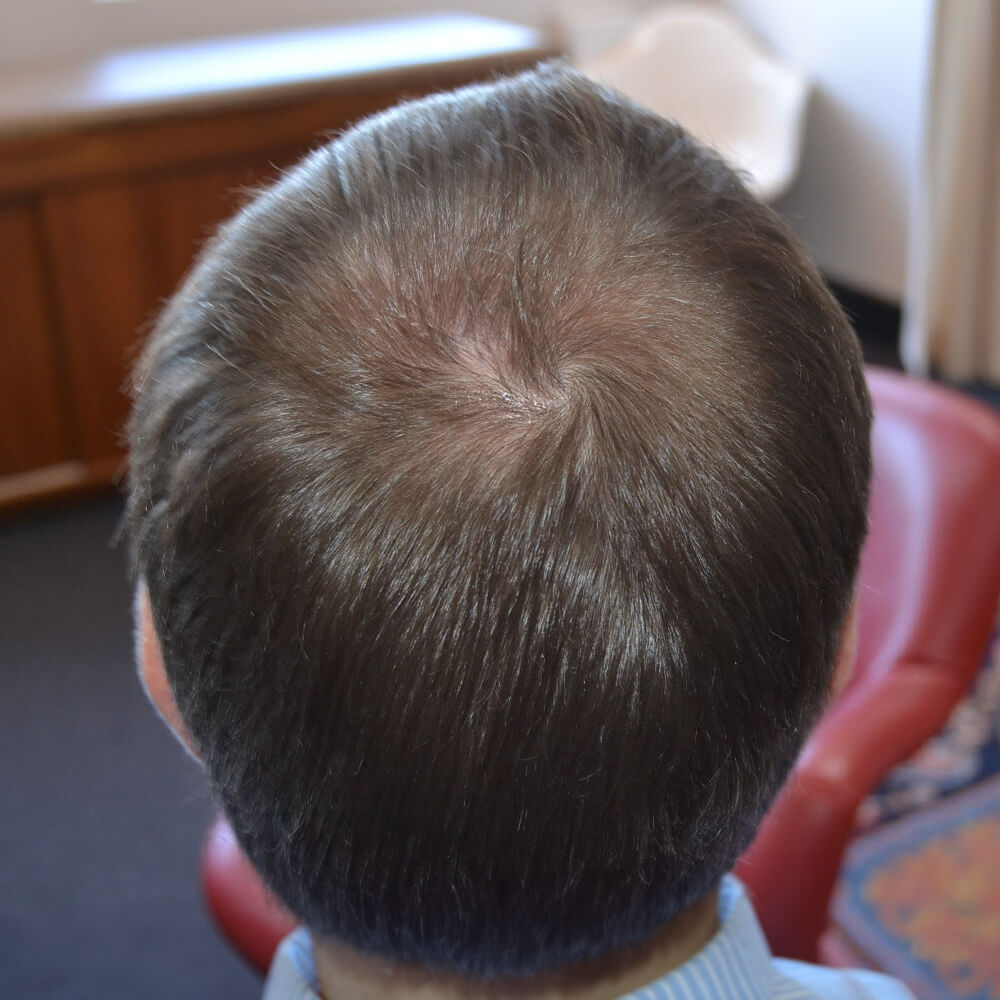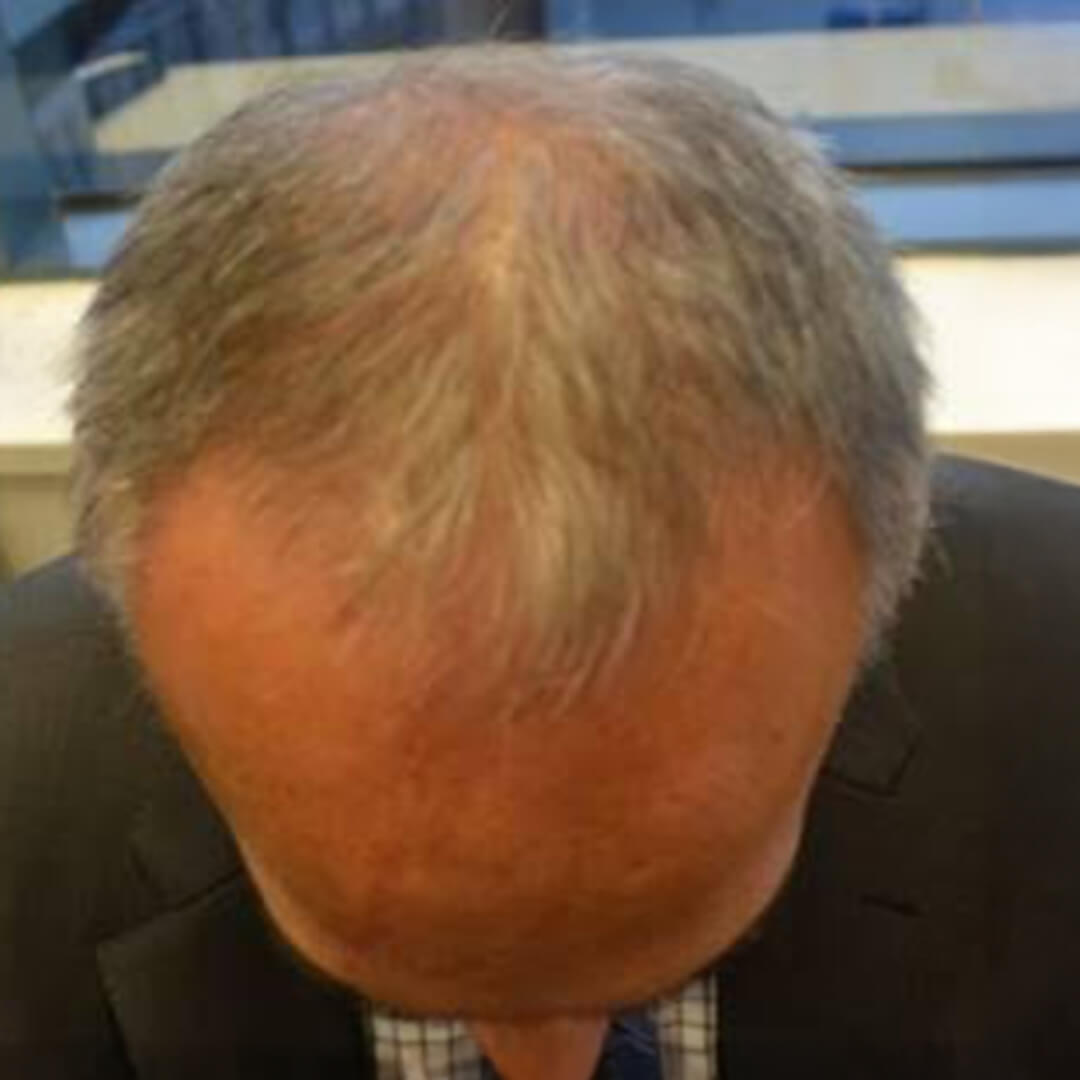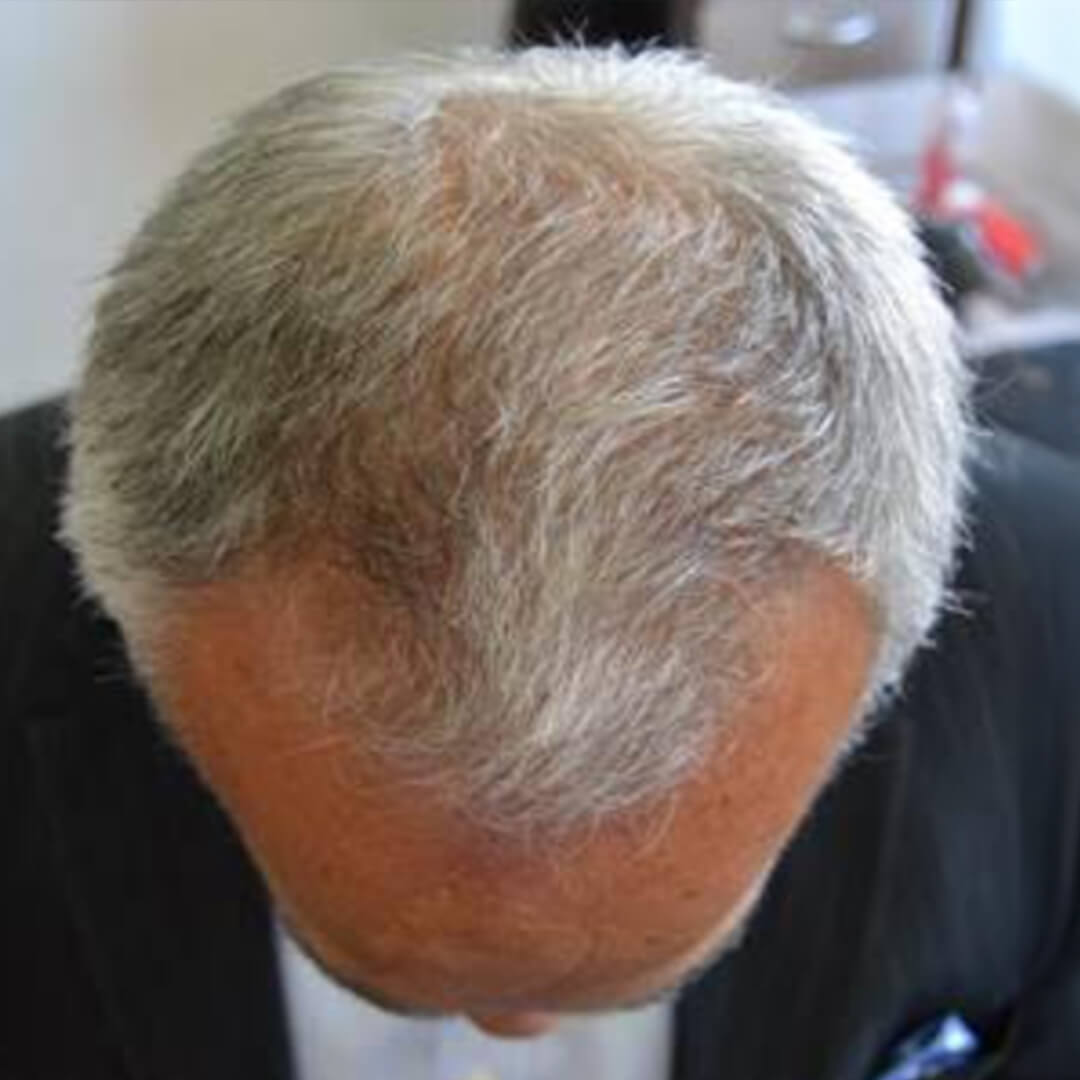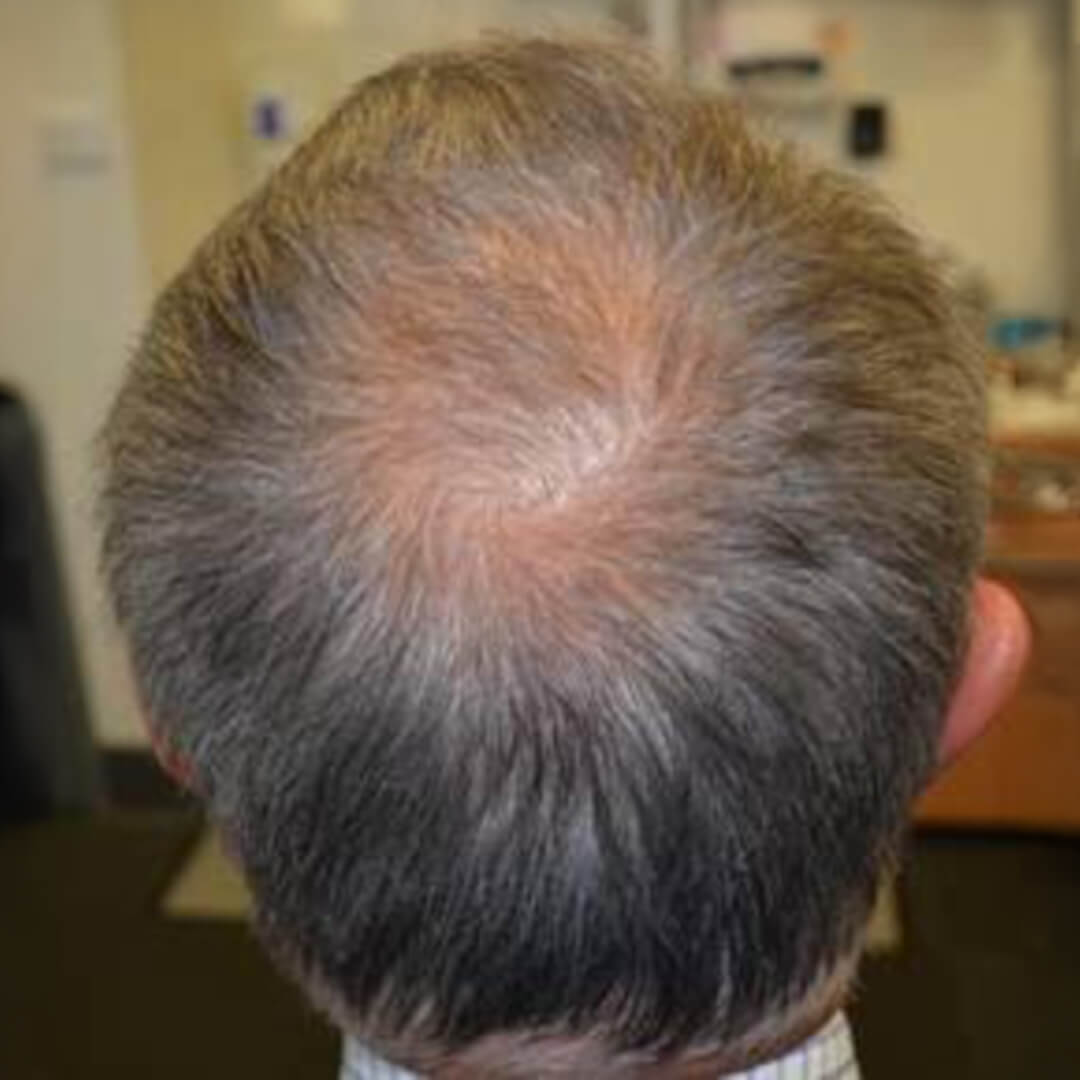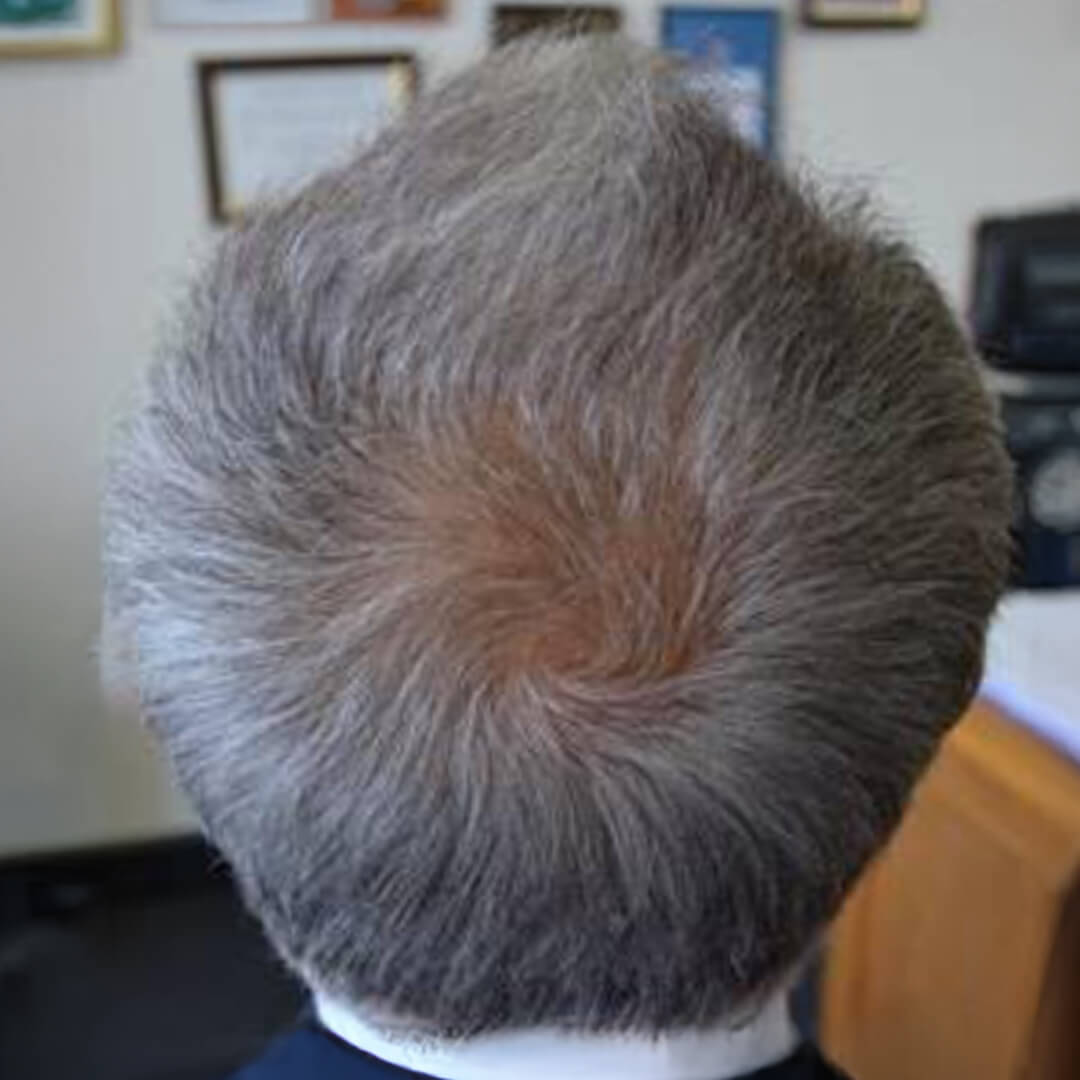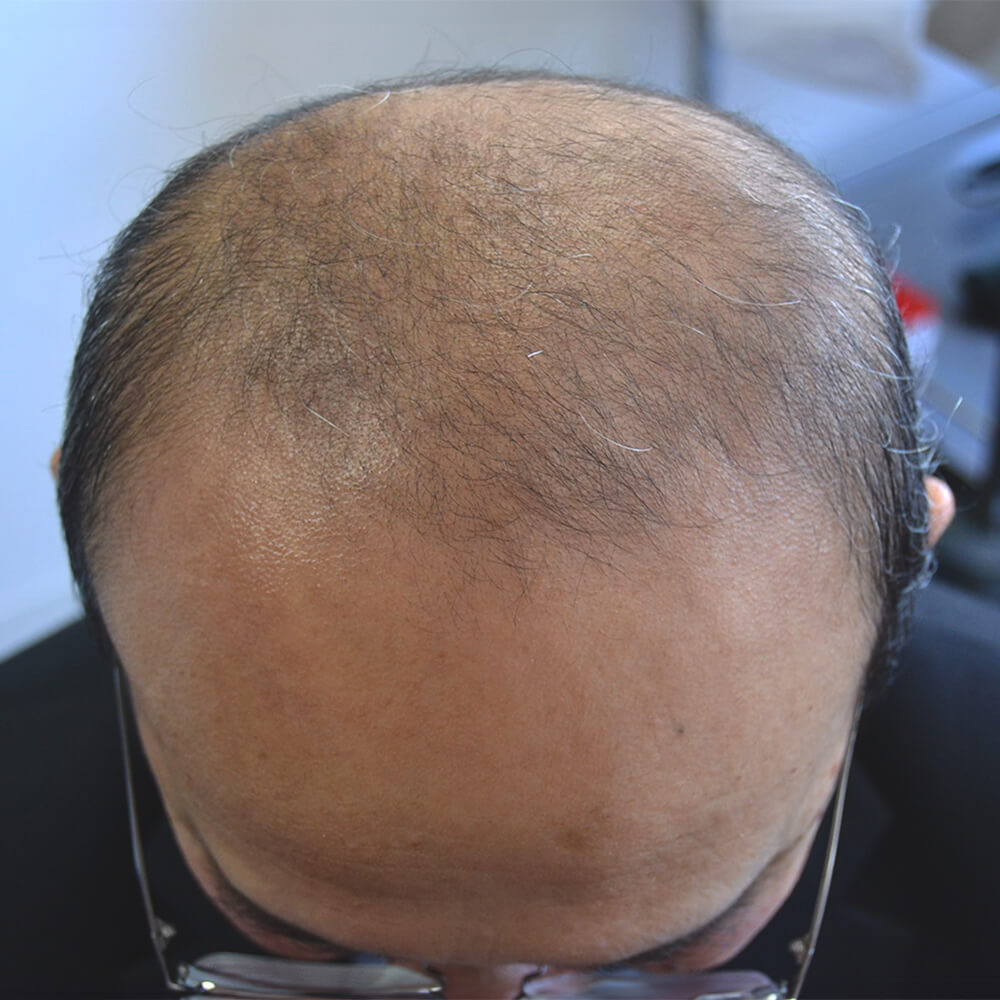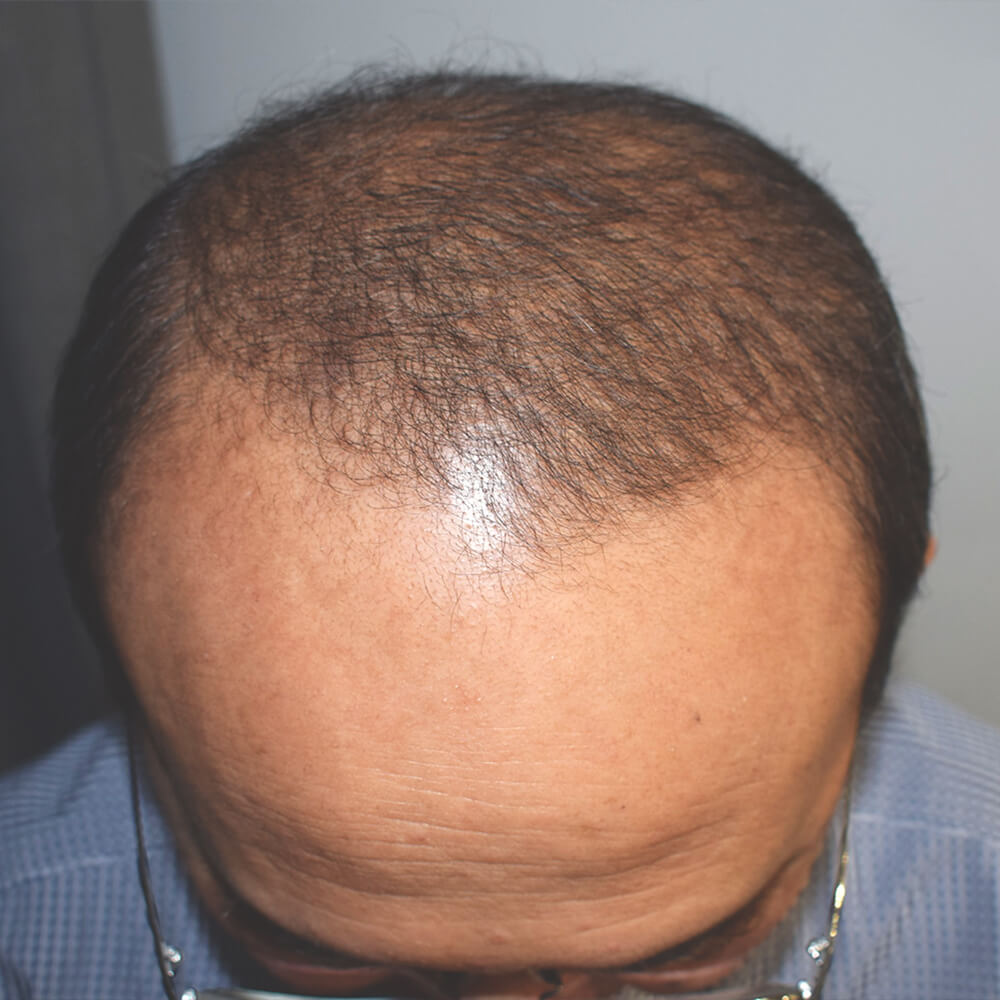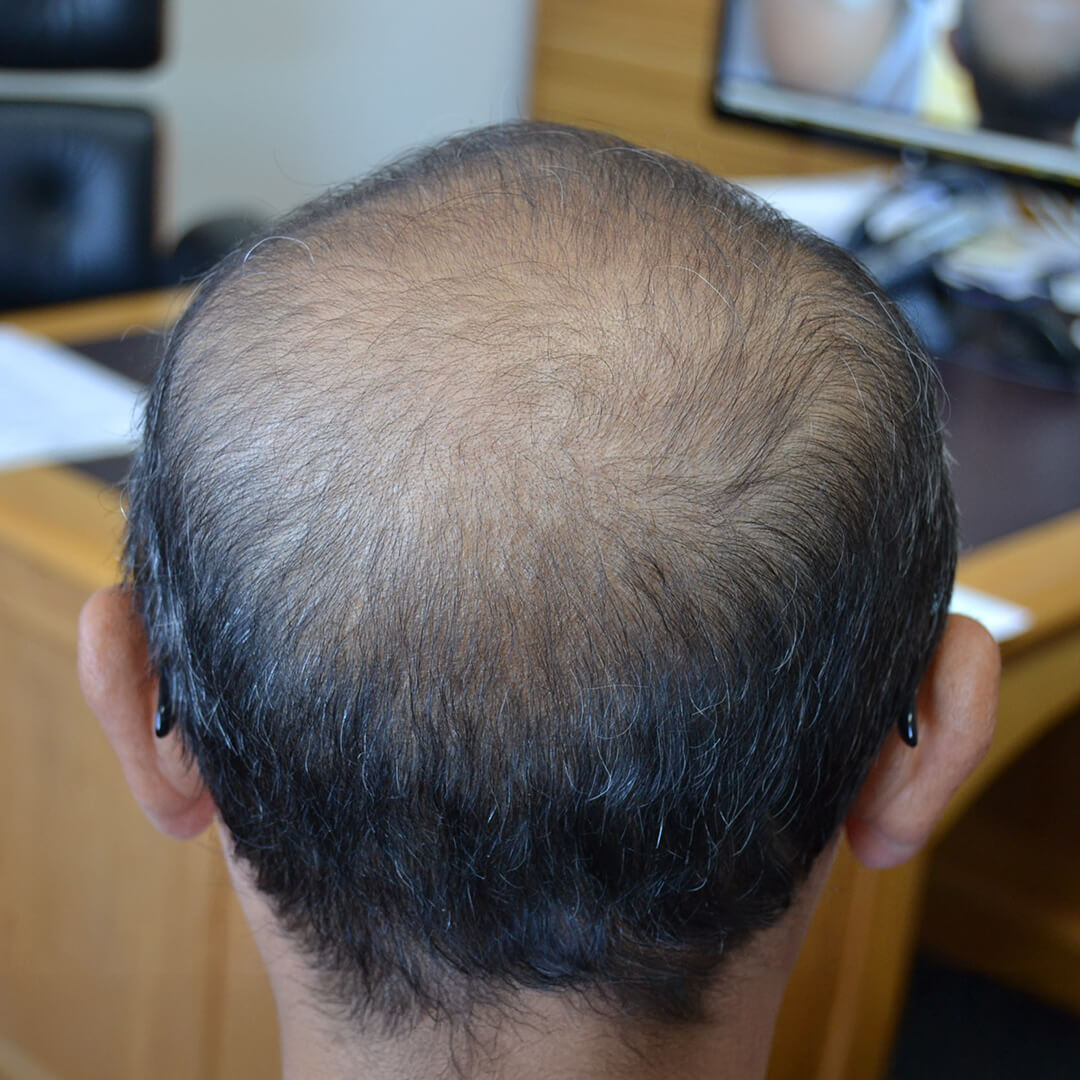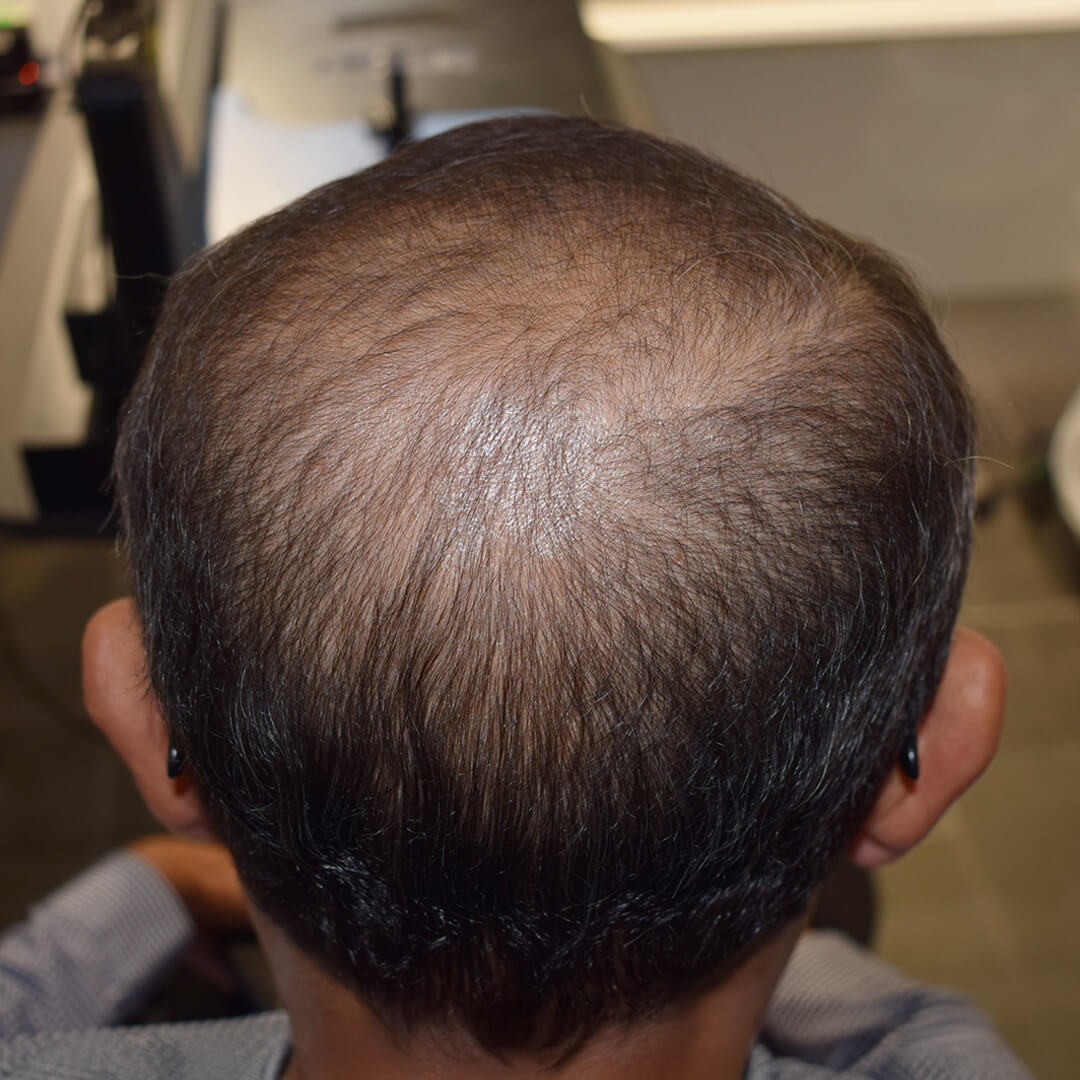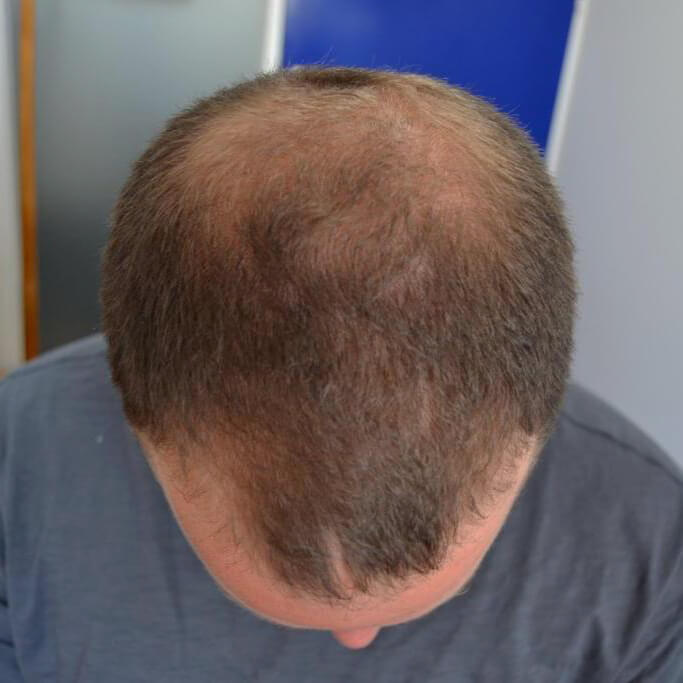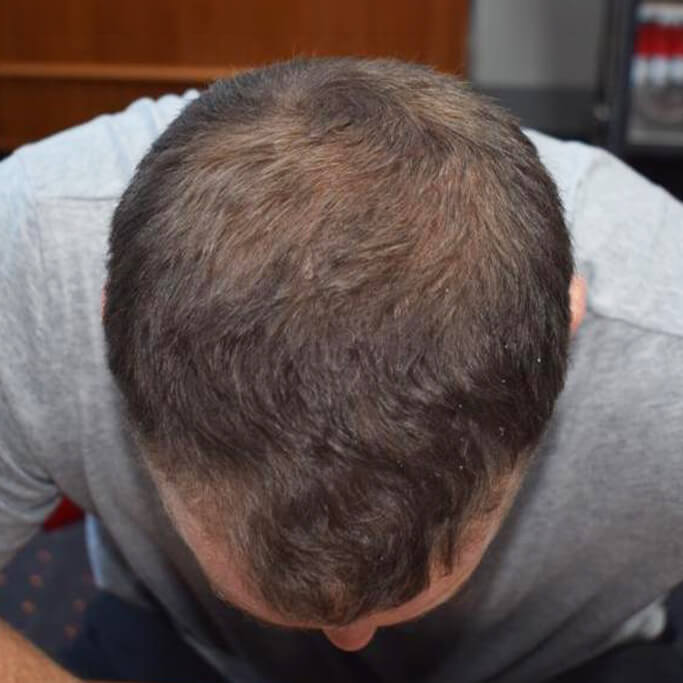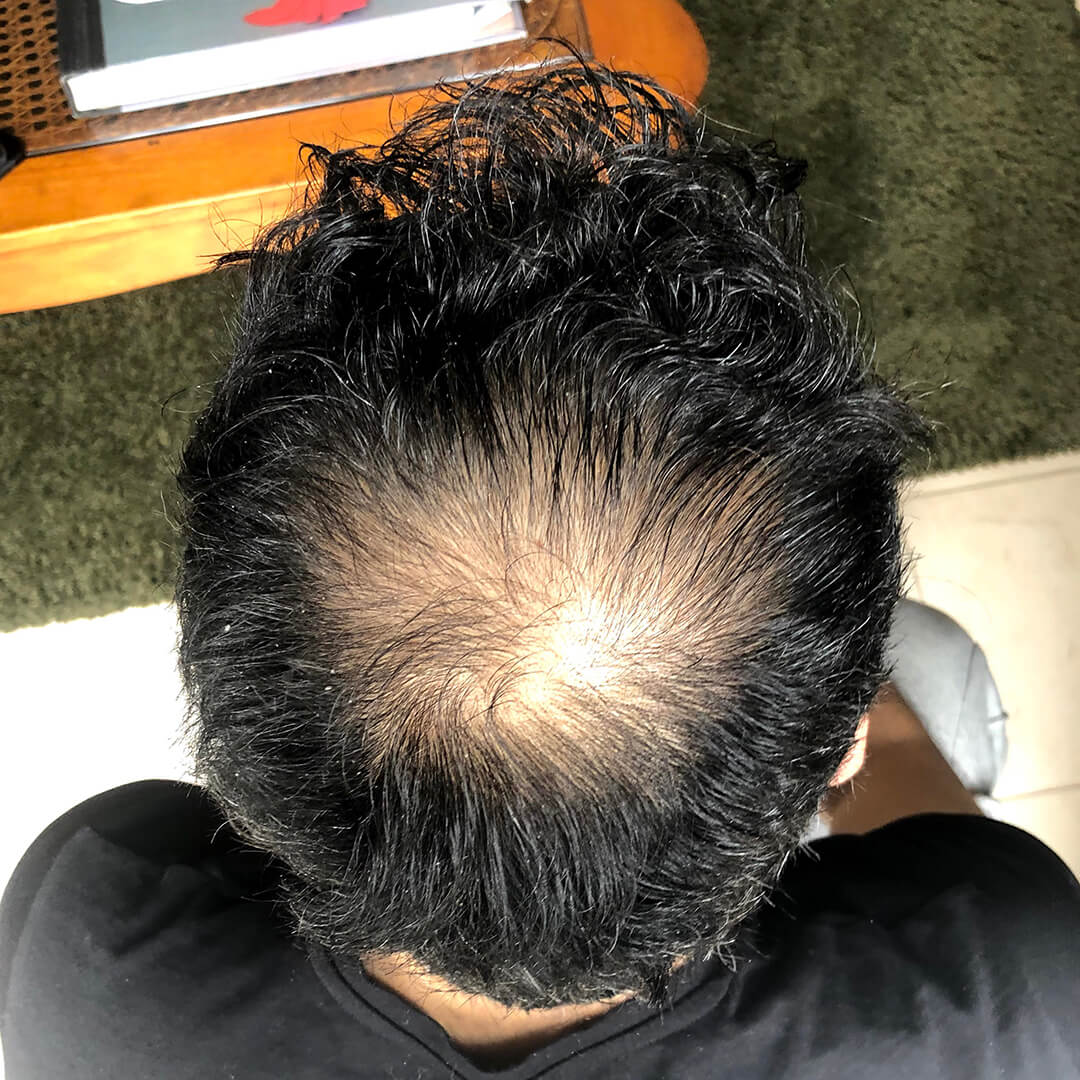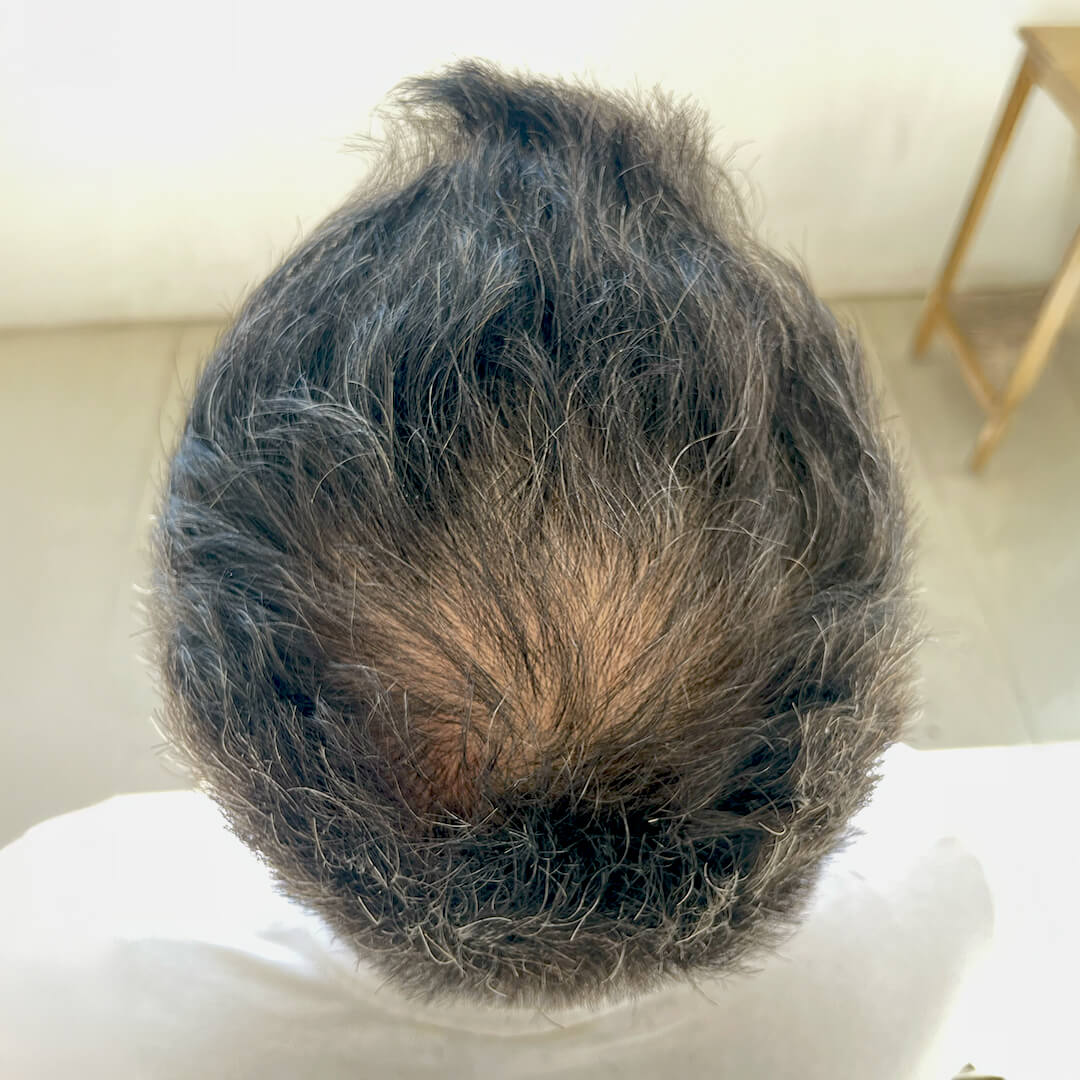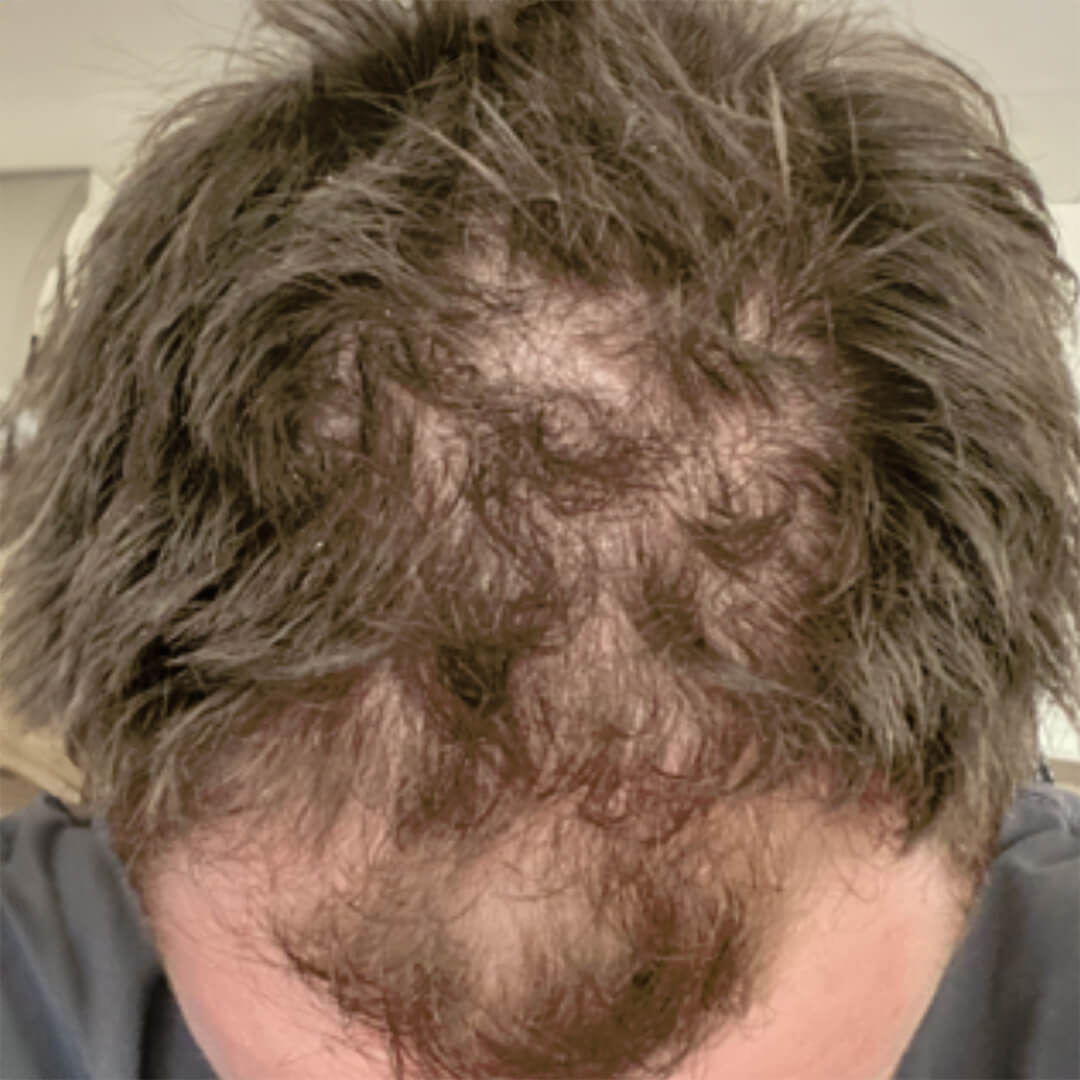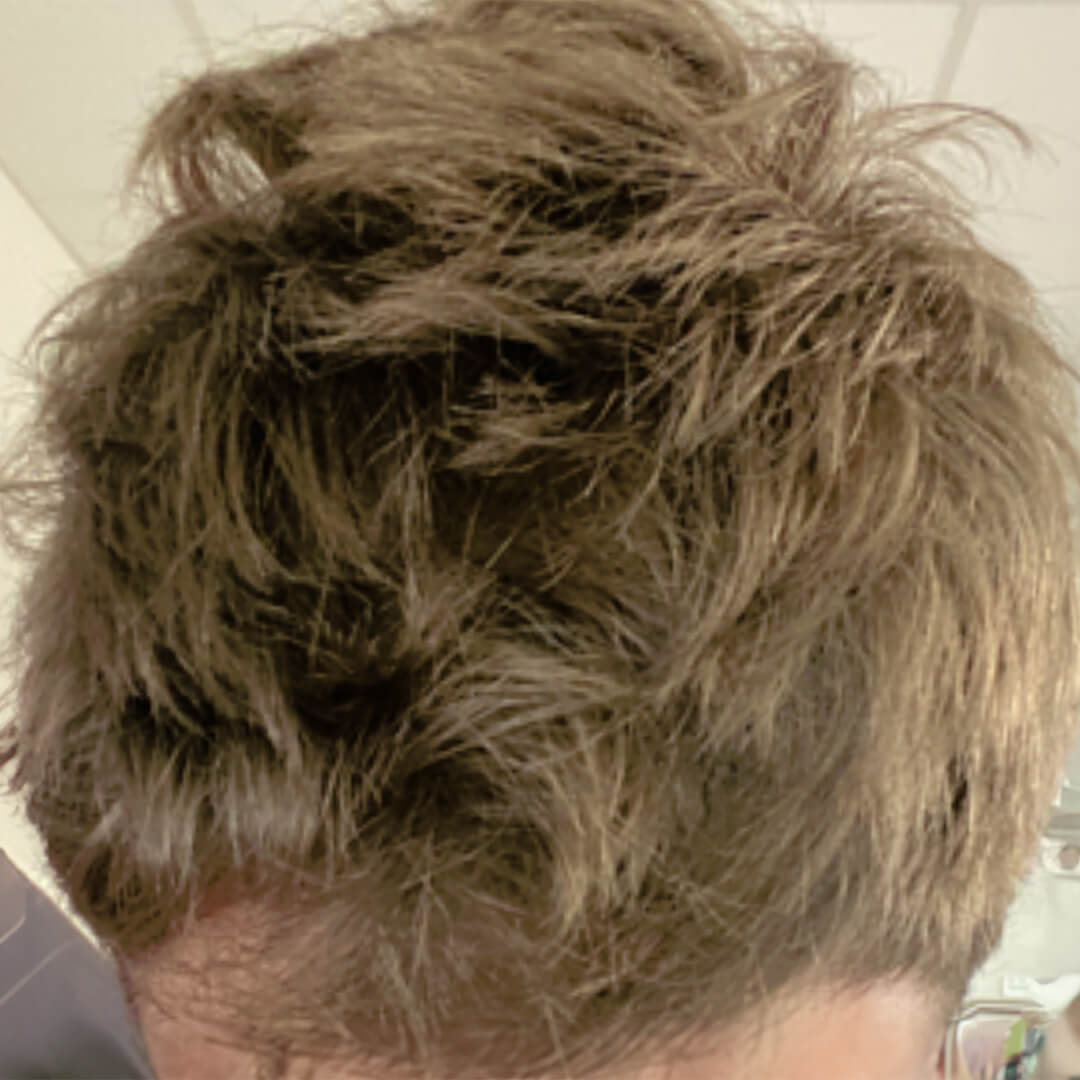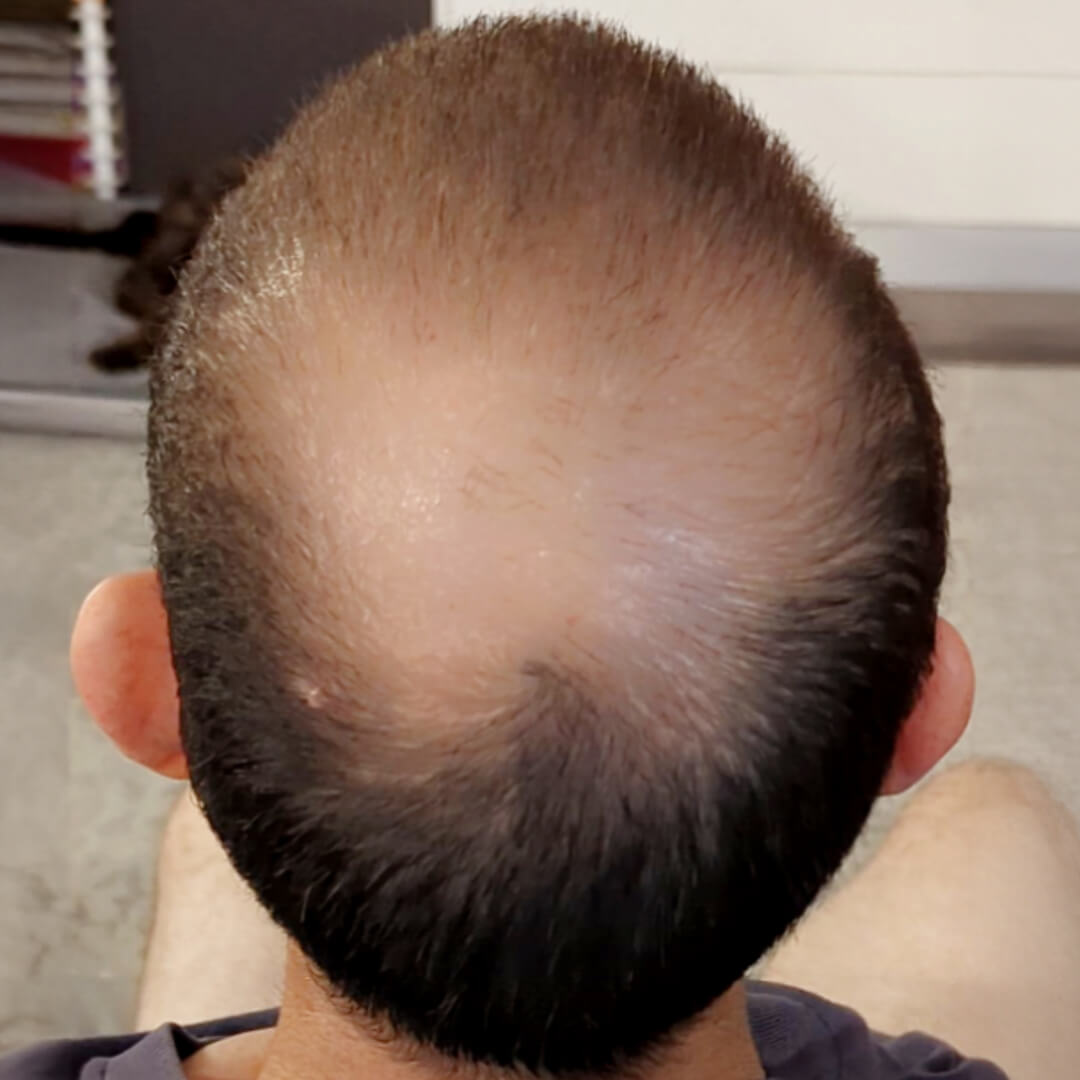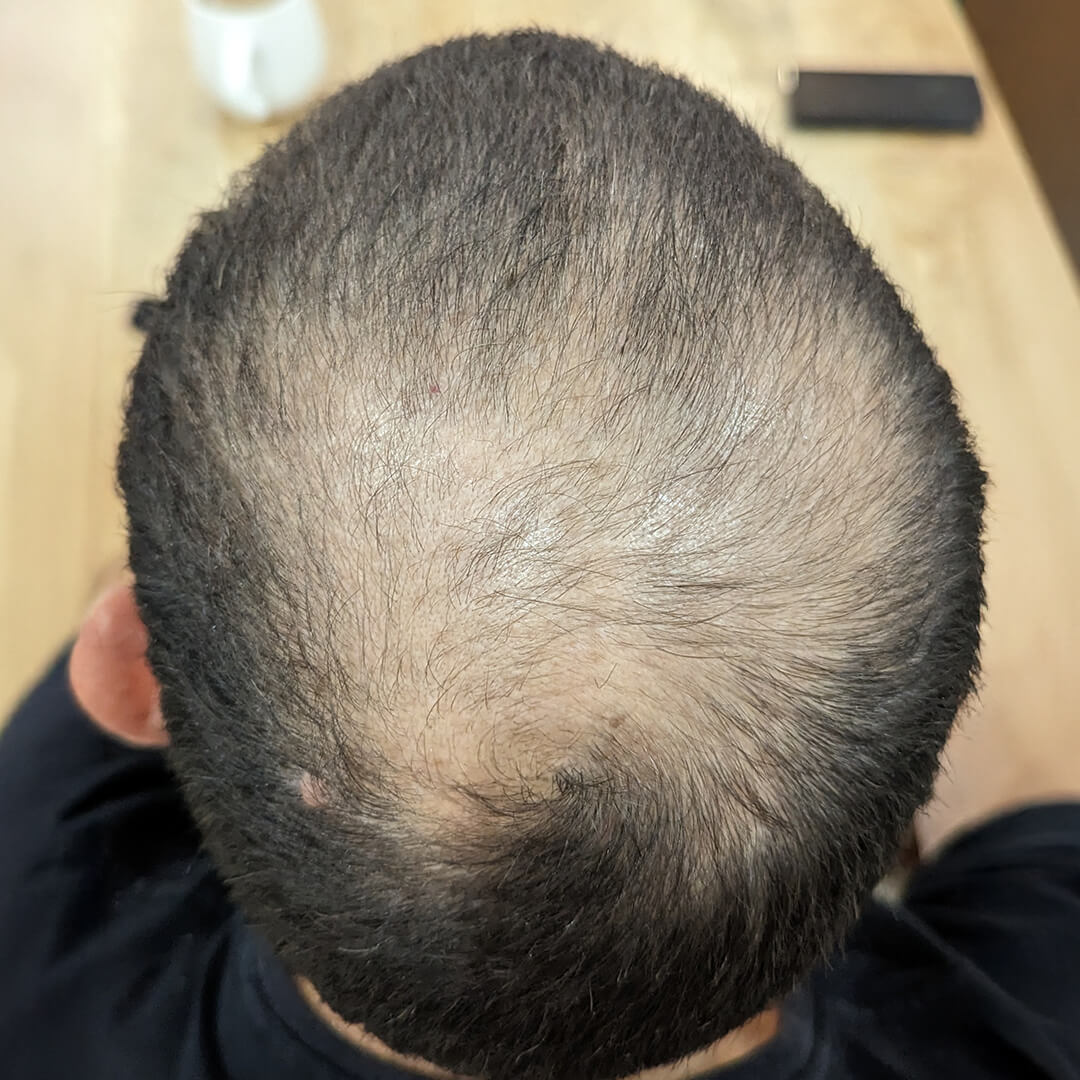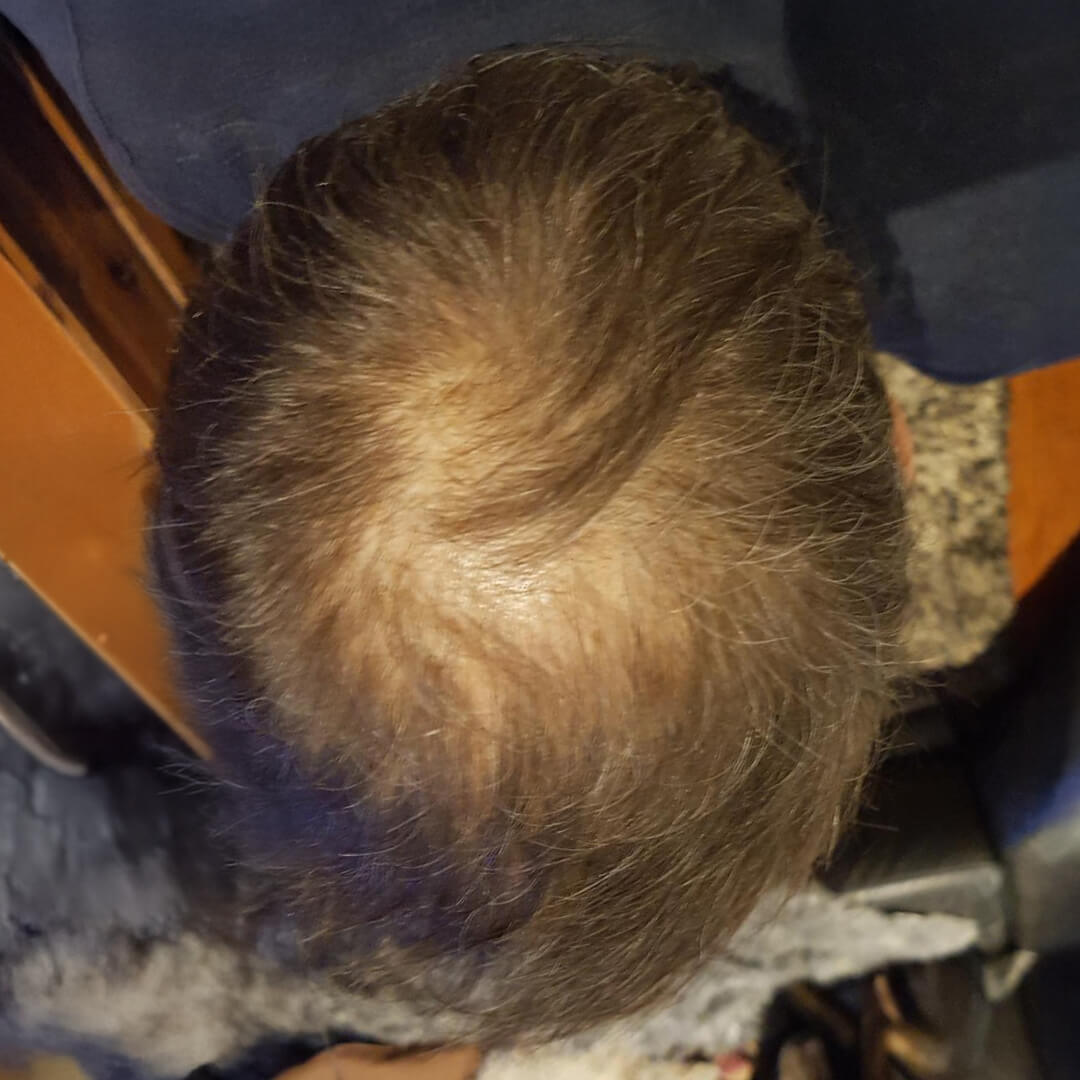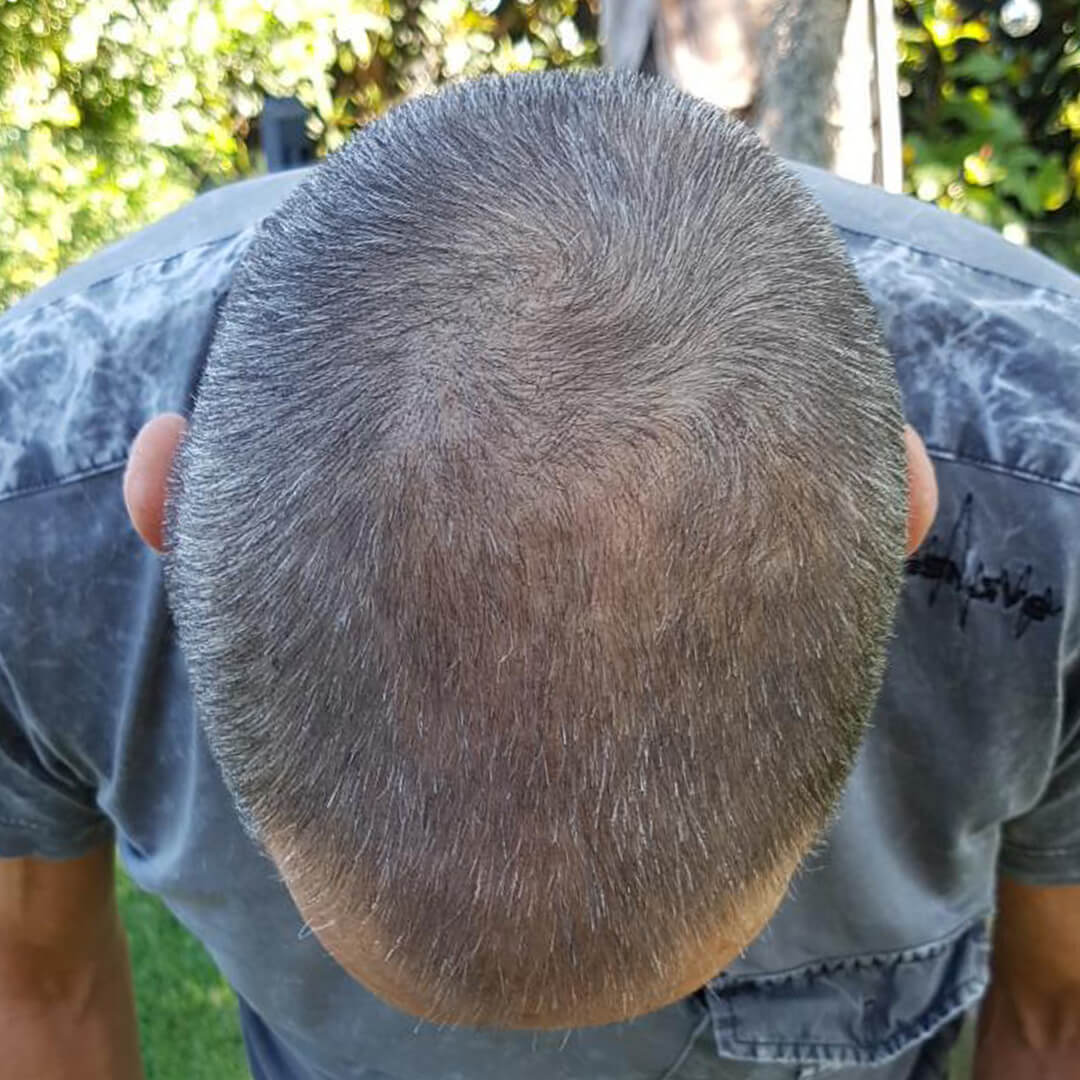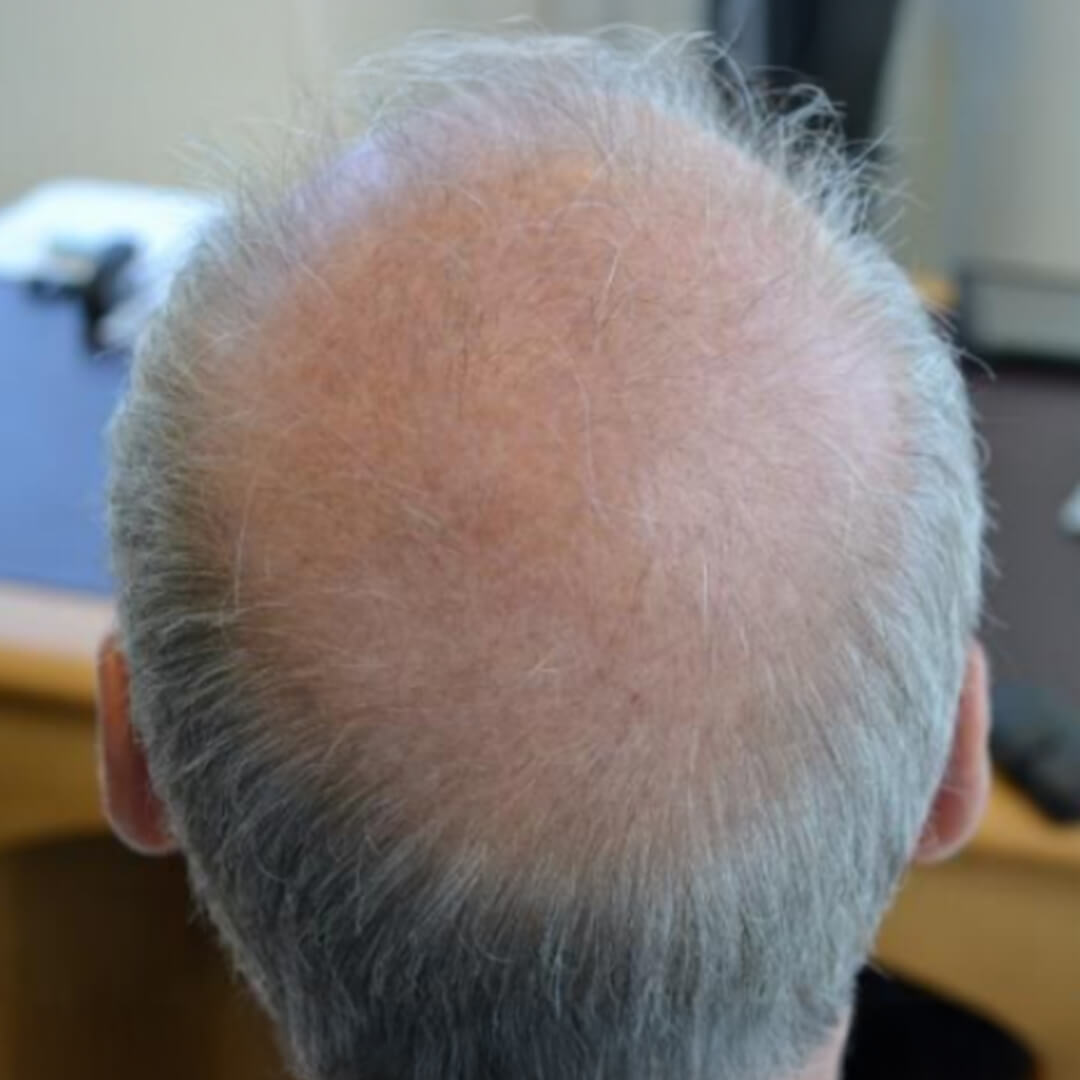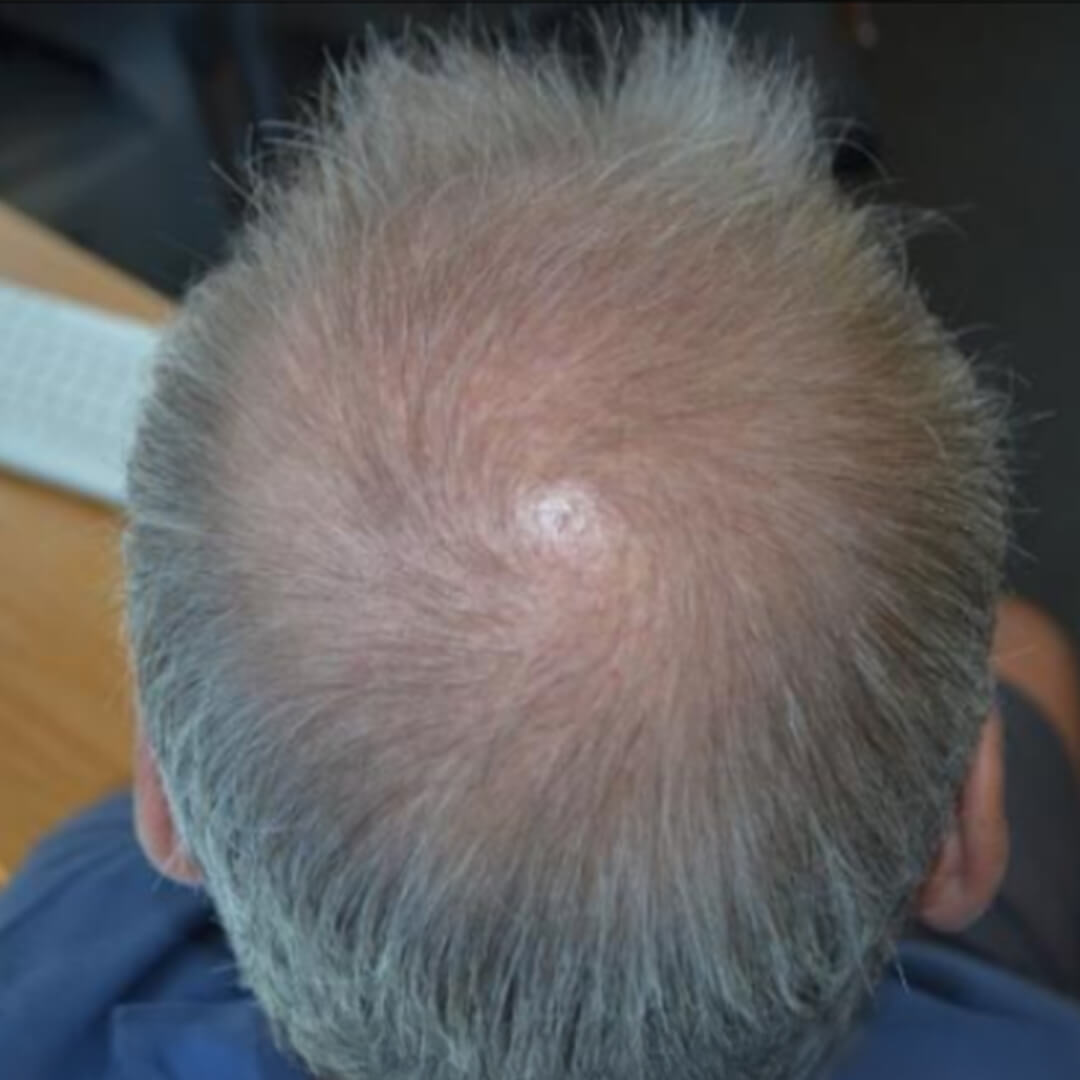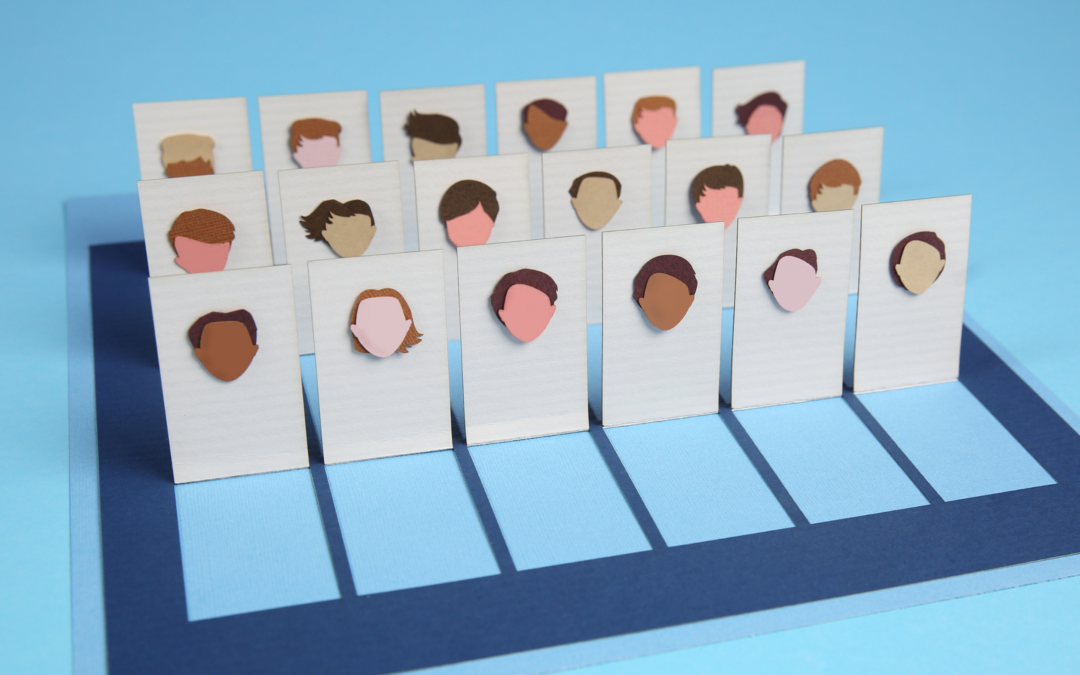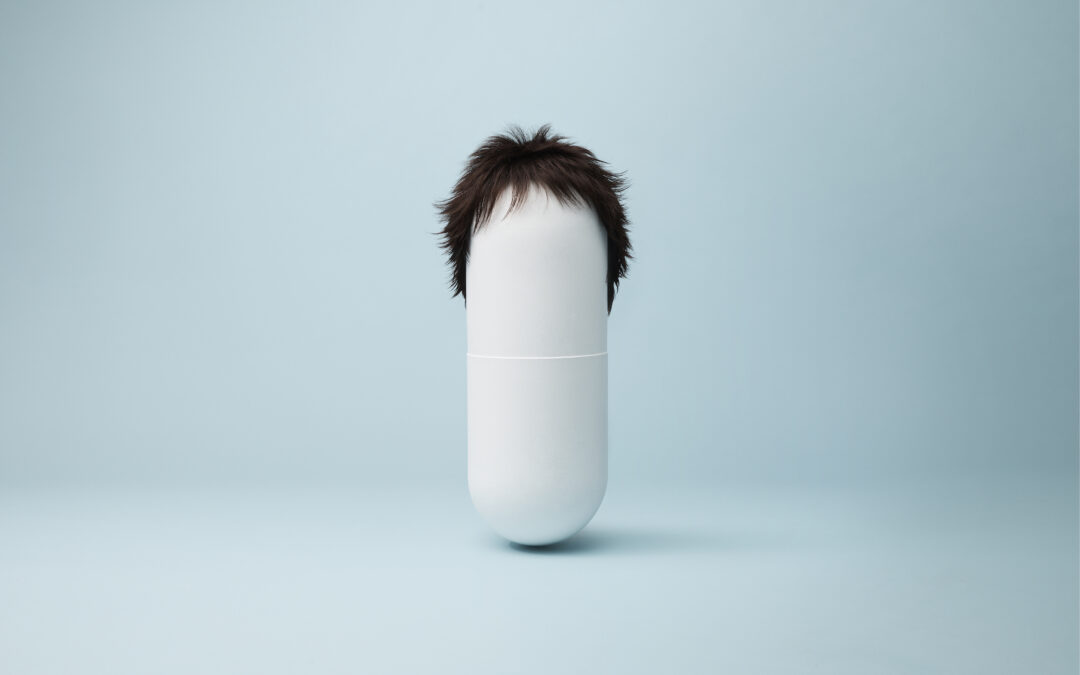The Hairy Pill® for Men
This daily men’s hair loss treatment uses advanced technology clinically proven to reduce the hormone linked to male pattern baldness while boosting blood flow to the follicles, stimulating regrowth. Here’s how it works.
The best hair fall treatment for men tackles the root cause of the problem. Your personalised formula includes only what you need — medical-grade actives to stop hair loss and promote regrowth, plus vitamins and minerals to support overall hair health.
0–3 months: Hair loss may slow or stop. New hairs may begin to push out the old.
3–6 months: Hair shedding may ease. You might even notice new growth.
6–12 months: Your hair may become thicker, fuller, and stronger all over.
Real people. Real results.
Examples indicate results of patients on The Hairy Pill®. Results may vary.
Don’t just take our word for it








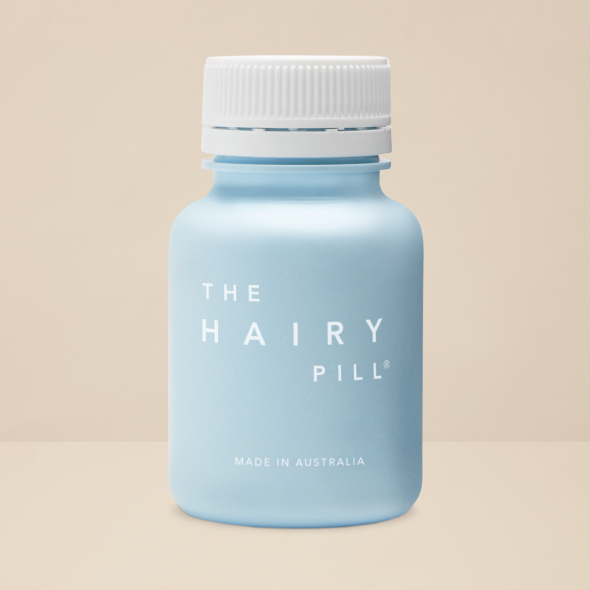
The Hairy Pill® for Men
$75 per month
3 months paid upfront A$225
Or from $10/week with Zip Pay
Pause, delay, and cancel whenever you like.
What about other men’s hair loss treatments?
| Treatments | Efficacy | Average cost | Rating | MoreInformation |
|---|---|---|---|---|
| Oral prescription treatments | Very High |
$
$
$
$
$
|
|
More |
|
Oral prescription treatments for male hair loss are among the most effective, scientifically supported solutions available. These treatments contain active ingredients clinically proven to address the root causes of hair loss, working internally to support long-term hair regrowth. With personalised treatment plans tailored to each individual, oral prescriptions provide a comprehensive approach to restoring hair health, delivering results that go beyond temporary, surface-level solutions. For men dealing with hair loss, oral medications represent a trusted, non-invasive option that can deliver visible, lasting results with a proven track record. Learn more. |
||||
| Hair transplants | Very High |
$
$
$
$
$
|
|
More |
|
Hair transplants are a highly effective treatment for male pattern baldness, typically used as a last resort for those who have not found success with other methods. This cosmetic procedure involves grafting healthy hair follicles from one part of the scalp (usually the back or sides) to the balding areas, restoring a more natural-looking hairline. However, the procedure comes with a high price tag, often ranging from thousands to tens of thousands of dollars, depending on the extent of the transplant needed. It is also not without its downsides—patients may experience discomfort, swelling, and a recovery period, and there are risks of complications like infection or scarring. Additionally, while hair transplants offer long-term results, they do not address the root cause of hair loss, meaning that ongoing care and management may still be needed to prevent further thinning. |
||||
| Scalp injections | High |
$
$
$
$
$
|
|
More |
|
Platelet-rich plasma (PRP) therapy is an advanced treatment for male hair loss that involves injecting the scalp with a concentration of your own platelets to promote hair follicle stimulation and growth. This procedure has shown promise in improving hair density and thickness for many individuals, with studies suggesting it can support hair regeneration and potentially slow the progression of baldness. However, while early results are encouraging, the long-term efficacy and consistency of PRP treatment are still being evaluated, and more research is needed to confirm its effectiveness across a broader population. |
||||
| Topical treatments | Medium |
$
$
$
$
$
|
|
More |
|
Topical treatments for male hair loss, such as minoxidil, are among the most commonly used solutions. Minoxidil works by improving blood flow to the hair follicles, which can help stimulate hair growth over time. However, it typically requires consistent, twice-daily application and can take several months before results become noticeable. |
||||
| Hair loss shampoos | Low |
$
$
$
$
$
|
|
More |
|
Hair loss shampoos can offer a mild improvement in the appearance of hair and may help with the health of existing strands, but they are not a complete solution for hair loss, especially when the cause is genetic. While some shampoos may temporarily thicken the hair or reduce shedding, they don’t address the root causes of male pattern baldness, such as hormonal imbalances or hereditary factors. |
||||
| Vitamins & supplements | Low |
$
$
$
$
$
|
|
More |
|
Vitamins and supplements may offer some support for hair health, particularly if you’re deficient in specific nutrients like iron, zinc, or biotin. These nutrients are essential for normal hair growth, and correcting a deficiency can help to prevent or slow down hair loss in some cases. However, supplements alone are unlikely to reverse male pattern baldness or significantly improve hair growth unless a deficiency is present. Most studies suggest supplements offer only partial help for hair loss, as genetic hair loss is driven by hormones, not nutritional deficiencies. While replenishing nutrients like iron may aid hair health, effects are typically mild and depend on individual needs. Learn more. |
||||
| Natural methods | Very Low |
$
$
$
$
$
|
|
More |
|
Old wives’ tale cures just won’t cut it when it comes to male hair loss. While natural methods like herbal remedies or essential oils might sound appealing, they often lack the scientific backing necessary to address the root causes of hair thinning or baldness. Most male hair loss is genetic, and relying on these unproven remedies typically results in minimal or no improvement. Learn more. |
||||
Disclaimer: The information provided in this table is for informational purposes only and is not intended to substitute professional medical advice. Individual results may vary based on personal factors such as the cause of hair loss and adherence to treatment. Please consult with a qualified healthcare provider for a personalised assessment and treatment plan. Cost ranges and efficacy ratings are approximate and may vary by product, brand, and treatment provider.
Each men’s hair loss treatment is personalised to you, down to the milligram.


Clinically proven remedies for male pattern baldness from Dermatologist Professor Sinclair.
Free consults: Talk hair loss remedies for men with our partner Australian doctors.

Some useful articles on men’s hair loss
How to Prevent Thinning Hair for Men
How To Prevent Hair Thinning: Men’s Edition Let’s face it, noticing your hair thinning can be a downer. It’s hardly a comfort to know that in males, it’s incredibly common for strands to become smaller and finer as you age. Nearly 20% of Australian men in their 20s will
What is Male Pattern Baldness?
What is Male Pattern Baldness? Male pattern baldness (MPB) is the most common type of hair loss for men. About half of all men experience it by the age of 50 and by the age of 70, that number jumps to 80%. For many men, male pattern baldness can
Men’s Hair Loss – Treatment and Solutions
Men’s Hair Loss – Treatment and Solutions Hair loss. Disconcerting? Yes. But are you alone? Not at all. Mens hair loss is extremely common. Around 20% of Australian men will become bald in their 20s, with that figure growing to almost half of all men by their 40s. It’s
A Word from one of our Patients
A word from one of our patients Losing your hair in your 20’s or 30’s (or even 40’s+) leaves you with a fairly horrendous range of choices that I faced about 18 months ago. I could live in denial, facing a future of cropping the top of my head
Causes of Men’s Hair Loss
What Are the Causes of Hair Loss in Men? We all start with about 100,000 hairs on our heads in our teens. But as time passes, many men will notice the thick mop on top start to thin out. It might be the receding hairline that gives it away.
Male Hair Loss Stages
Hair Loss Stages for Men: What to Look for Very few men will walk through life without some form of hair thinning or hair loss. In fact, 80% of all Australian men experience hair loss at some point. It’s a daunting prospect, sure. But just because your dad or
How to Prevent Thinning Hair for Men
How To Prevent Hair Thinning: Men’s Edition Let’s face it, noticing your hair thinning can be a downer. It’s hardly a comfort to know that in males, it’s incredibly common for strands to become smaller and finer as you age. Nearly 20% of Australian men in their 20s will
What is Male Pattern Baldness?
What is Male Pattern Baldness? Male pattern baldness (MPB) is the most common type of hair loss for men. About half of all men experience it by the age of 50 and by the age of 70, that number jumps to 80%. For many men, male pattern baldness can
Men’s Hair Loss – Treatment and Solutions
Men’s Hair Loss – Treatment and Solutions Hair loss. Disconcerting? Yes. But are you alone? Not at all. Mens hair loss is extremely common. Around 20% of Australian men will become bald in their 20s, with that figure growing to almost half of all men by their 40s. It’s
A Word from one of our Patients
A word from one of our patients Losing your hair in your 20’s or 30’s (or even 40’s+) leaves you with a fairly horrendous range of choices that I faced about 18 months ago. I could live in denial, facing a future of cropping the top of my head
Causes of Men’s Hair Loss
What Are the Causes of Hair Loss in Men? We all start with about 100,000 hairs on our heads in our teens. But as time passes, many men will notice the thick mop on top start to thin out. It might be the receding hairline that gives it away.
Male Hair Loss Stages
Hair Loss Stages for Men: What to Look for Very few men will walk through life without some form of hair thinning or hair loss. In fact, 80% of all Australian men experience hair loss at some point. It’s a daunting prospect, sure. But just because your dad or
How to Prevent Thinning Hair for Men
How To Prevent Hair Thinning: Men’s Edition Let’s face it, noticing your hair thinning can be a downer. It’s hardly a comfort to know that in males, it’s incredibly common for strands to become smaller and finer as you age. Nearly 20% of Australian men in their 20s will
What is Male Pattern Baldness?
What is Male Pattern Baldness? Male pattern baldness (MPB) is the most common type of hair loss for men. About half of all men experience it by the age of 50 and by the age of 70, that number jumps to 80%. For many men, male pattern baldness can
Still Sceptical? Your FAQs
What causes hair loss in males?
The most common cause of hair loss in males is genetics. By the age of 70, almost 80% of men experience hair loss as a result of androgenetic alopecia, also called male pattern baldness.
So what causes male pattern hair loss or baldness? This is a hereditary condition where hair follicles are more sensitive to a type of hormone called dihydrotestosterone (DHT), which causes the hair follicles to shrink. Male pattern baldness can begin after puberty and may lead to baldness if left alone.
Male hair loss may also be caused by severe stress to the body, medical treatment, medications, scarring, infections, or an autoimmune condition.
What causes sudden hair loss in males?
Sudden hair loss may be caused by extreme stress. When your body experiences a severe shock, the stress can disrupt your hair growth cycle, leading to sudden hair shedding about 3 months after the event. This is usually a temporary hair loss condition known as telogen effluvium. In most cases, your hair will recover after about 6 months.
Can low testosterone cause hair loss in males?
Hair loss doesn’t happen because you have too much or too little testosterone but because you have hair follicles that are more sensitive to another hormone called dihydrotestosterone (DHT), which causes the hair follicles to shrink.
However, there is a tenuous link between testosterone and hair loss. That’s because while some testosterone binds to proteins in your body, enzymes convert the rest (called free testosterone) into dihydrotestosterone (DHT).
It’s not as easy as saying more (or less) testosterone equals more DHT. For example, studies show that men with baldness can have lower levels of free testosterone but higher levels of the enzyme that converts it into DHT. More important than testosterone levels is your genetic sensitivity to DHT.
When does hair loss start in males?
Hair loss doesn’t usually start until after puberty but it is common for men in their 20s to experience some degree of hair loss. In fact, by 30 years old, 30% of white men have androgenetic alopecia (male pattern hair loss).
Everybody’s hair loss journey is different so the progress of your hair loss can be unpredictable. It takes on average between 15 and 25 years for a man to go bald.
This personalised journey is why it’s so important that male hair thinning remedies are also personalised. Everybody has different needs.
How to prevent male hair loss?
It depends on the type of hair loss. Some behavioural or lifestyle changes might help slow or prevent hair loss. This may include quitting smoking and eating a healthy diet containing the best foods for healthy hair.
Prioritising good sleep and regular exercise can also help lower stress levels, which can play a role in hair health.
For genetic hair loss, it gets a little trickier. Considering a treatment plan is key. Men’s hair loss treatments, including The Hairy Pill®, are designed to help slow down hair loss in its early stages and can even encourage regrowth. Learn more about how to prevent hair thinning in men.
How to stop male hair loss?
If your hair loss is temporary (due to factors like stress or illness) it may resolve on its own over time. But if you think it’s genetic, the best thing you can do to stop male pattern hair loss is take action — the sooner, the better. Addressing hair loss early gives you a greater chance of slowing it down or even reversing it.
A hair loss doctor or dermatologist can assess your hair and recommend the best course of action. This might include lifestyle changes or more targeted treatment options tailored to your needs, including The Hairy Pill®.
What is the best treatment for men’s hair loss?
Ultimately, the best hair loss treatment for men is the one that is personalised to each individual. The hair loss journey is different for everyone. The best solutions acknowledge that.
While hair loss vitamins, supplements, and shampoos may help nourish your hair follicles, male pattern baldness requires stronger treatment.
The most effective men’s hair loss medications contain active ingredients designed to stop hair loss (such as finasteride)and stimulate regrowth (such as minoxidil).
If you’d like to know what’s in The Hairy Pill®, you’re welcome to reach out.
Am I too late to start my hair loss treatment?
It’s never really too late to start treatment if you want to try and stop further male hair loss and stimulate hair growth. We have male patients from 18 to 85.
In general, from the moment a hair follicle stops producing hair, it will take around 20 years for the stem cell inside the follicle to die and make recovery impossible. In the meantime, there’s no telling how much hair you can regrow until you start treatment.
What if I'm currently using a hair loss treatment?
Not a problem. The Hairy Pill® may be used in conjunction with your current prescription medication or it may replace your treatment.
The ingredients that make up The Hairy Pill® will be personalised to you based on your consultation with one of our partner doctors. Our partner pharmacy can work with you and the practitioner to provide what you need in one single, compounded pill.
If you need any further information on this, it will be provided when you order. Alternatively, you can reach out and ask our team anytime.
Can I cancel my subscription once my hair grows back?
You’re free to cancel your subscription with The Hairy Pill® at any time. There are no lock-in contracts or cancellation fees. However, in most cases, once you stop treatment, your hair loss will return.
Something else?
Give us a call (03) 8899 6322
Stay in the Loop
Sign up for some more information and exclusive offers.
Find out everything you need to know about hair loss. It’s a hairy subject, but a good one.
"*" indicates required fields

